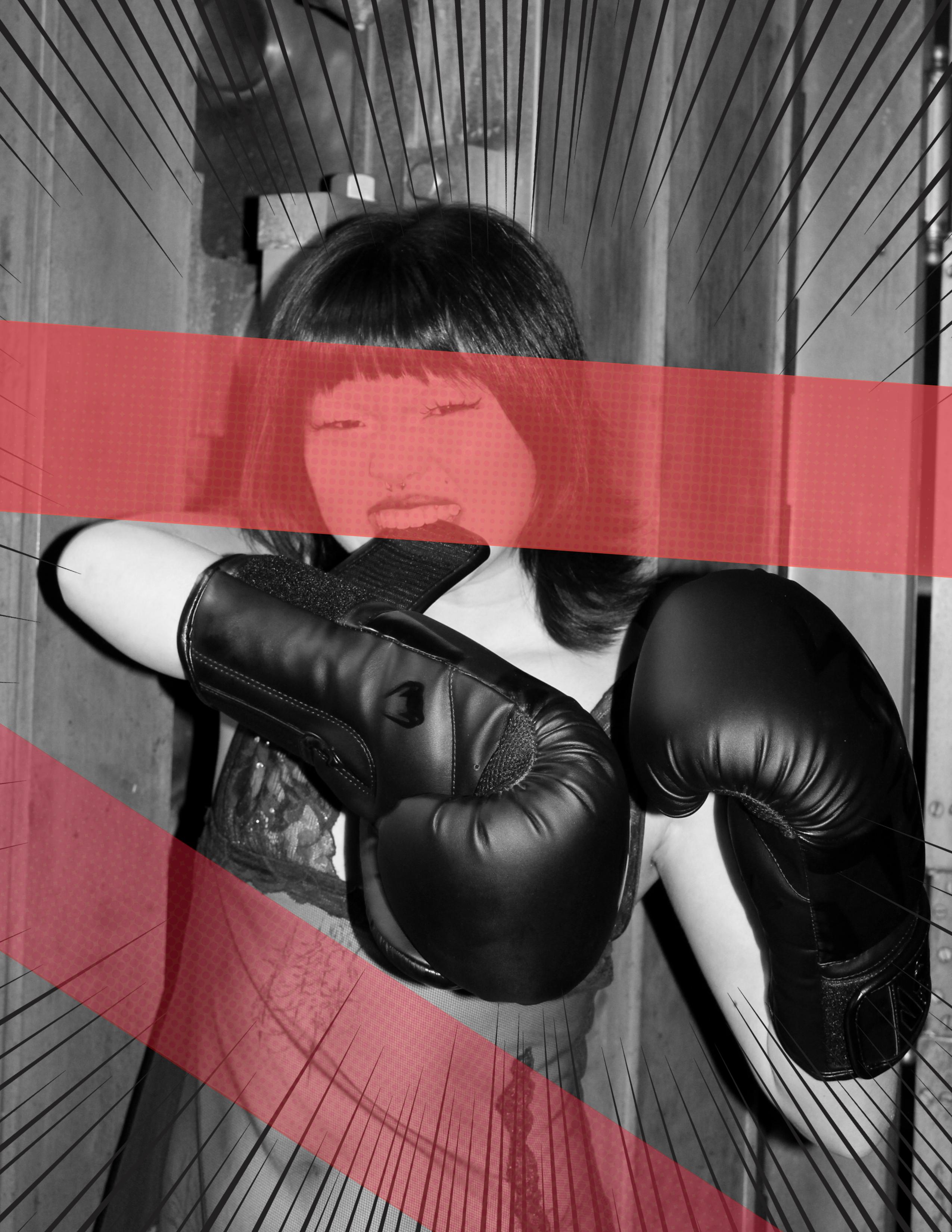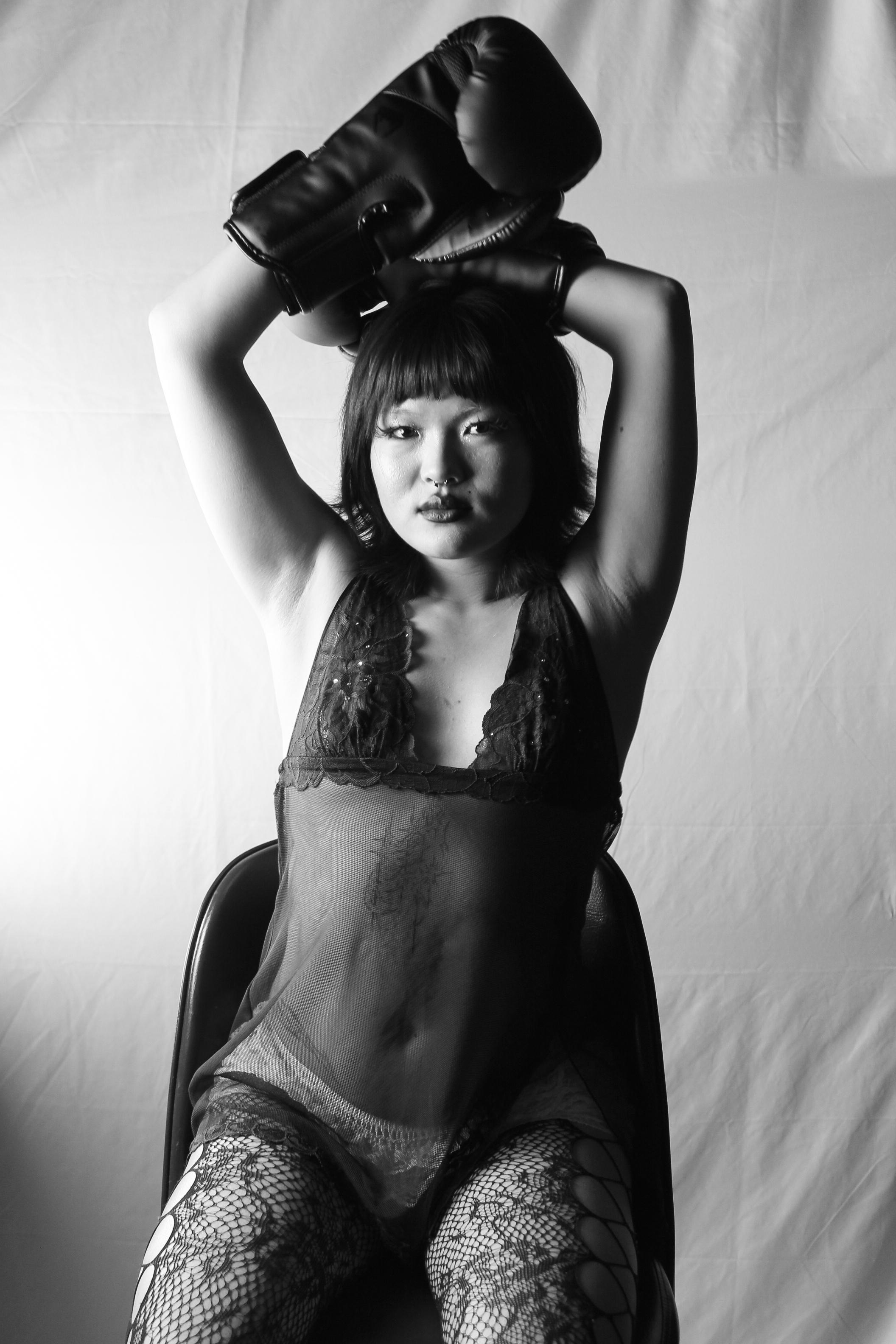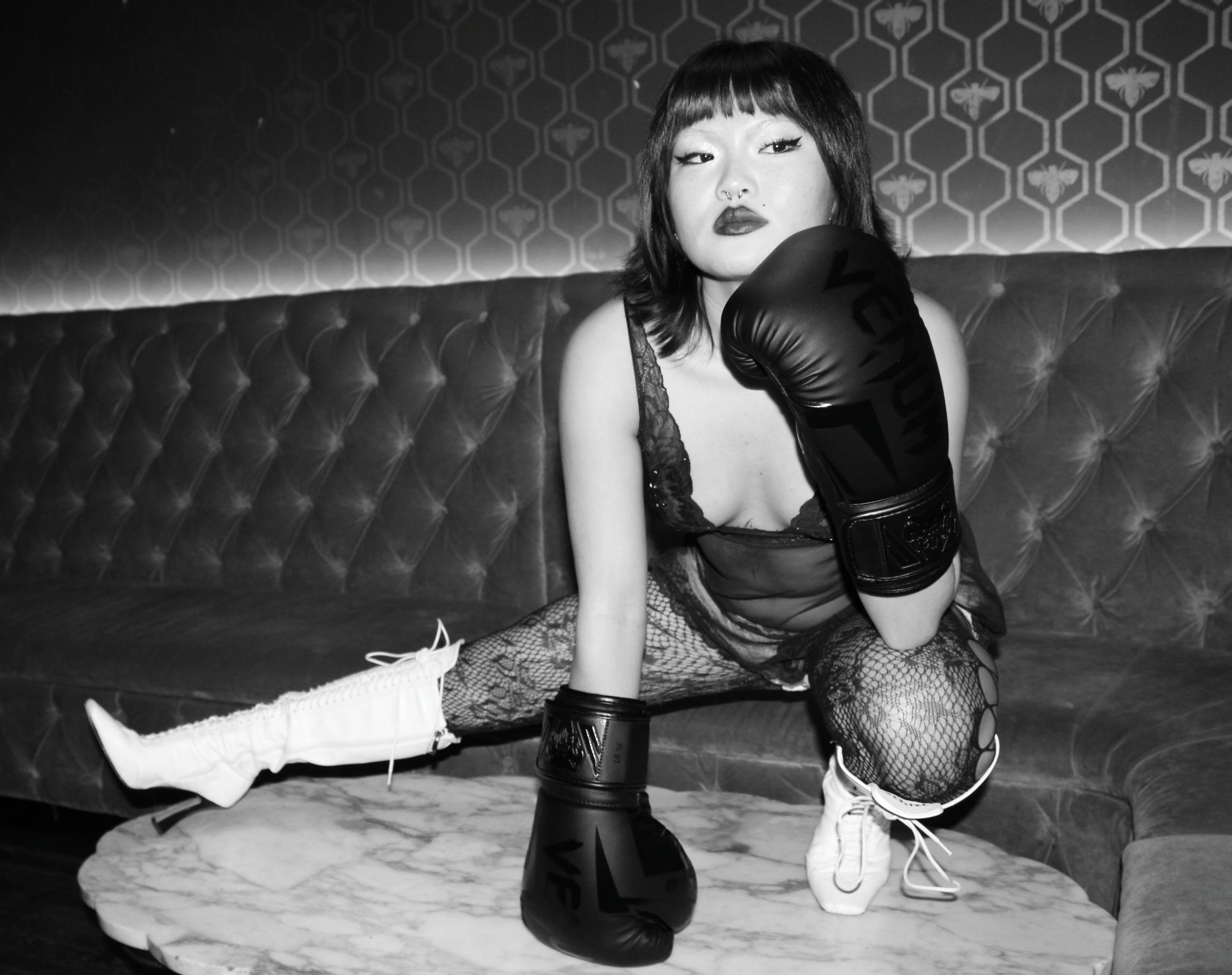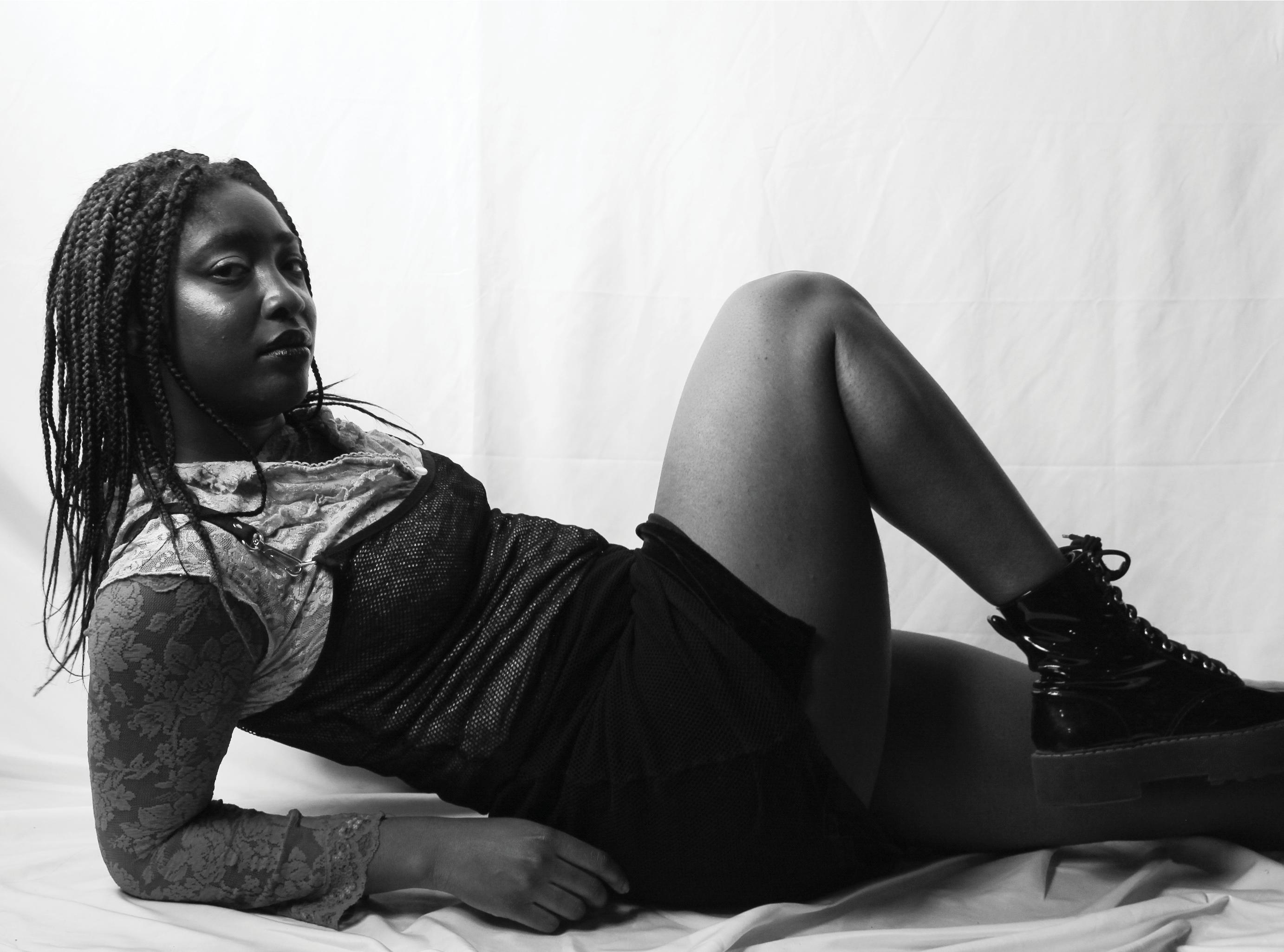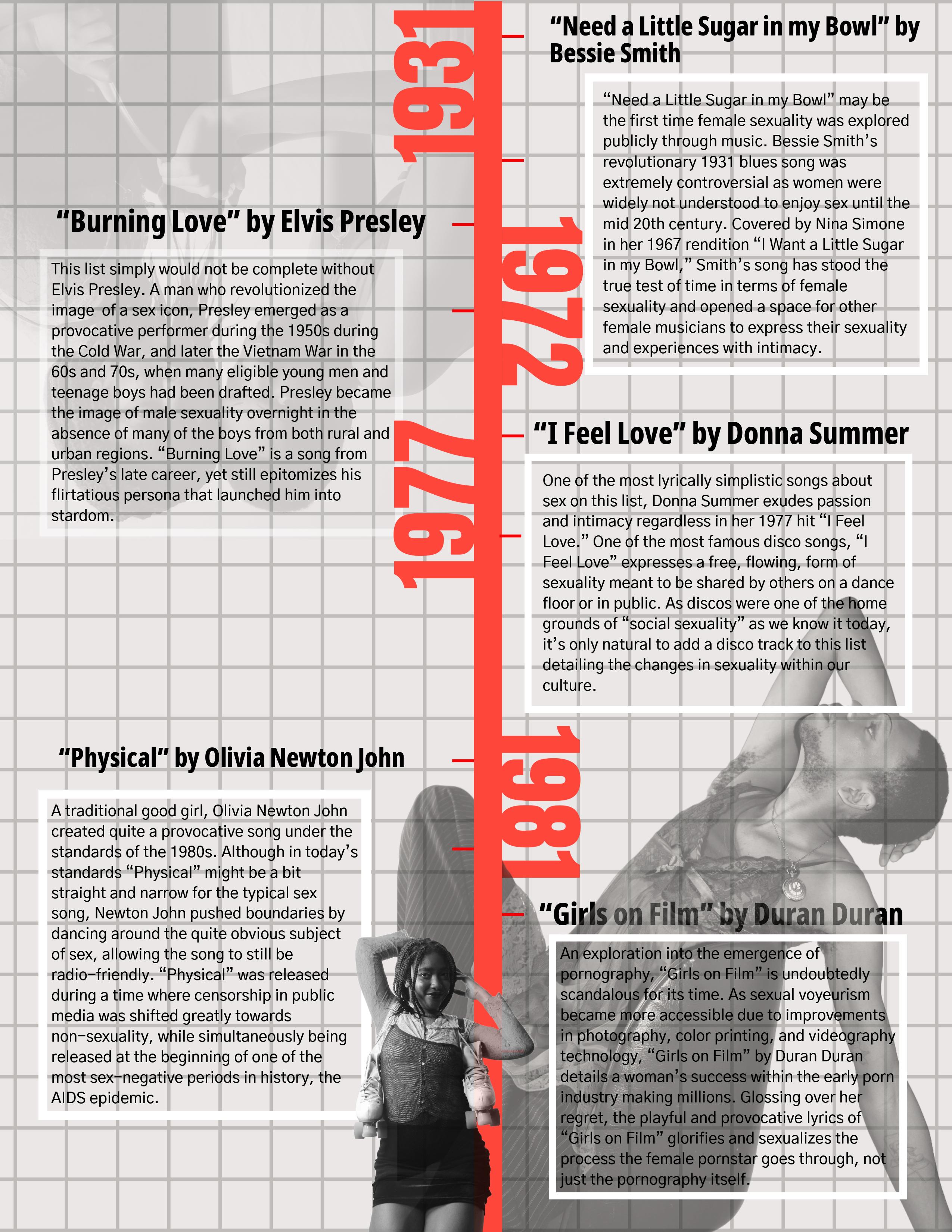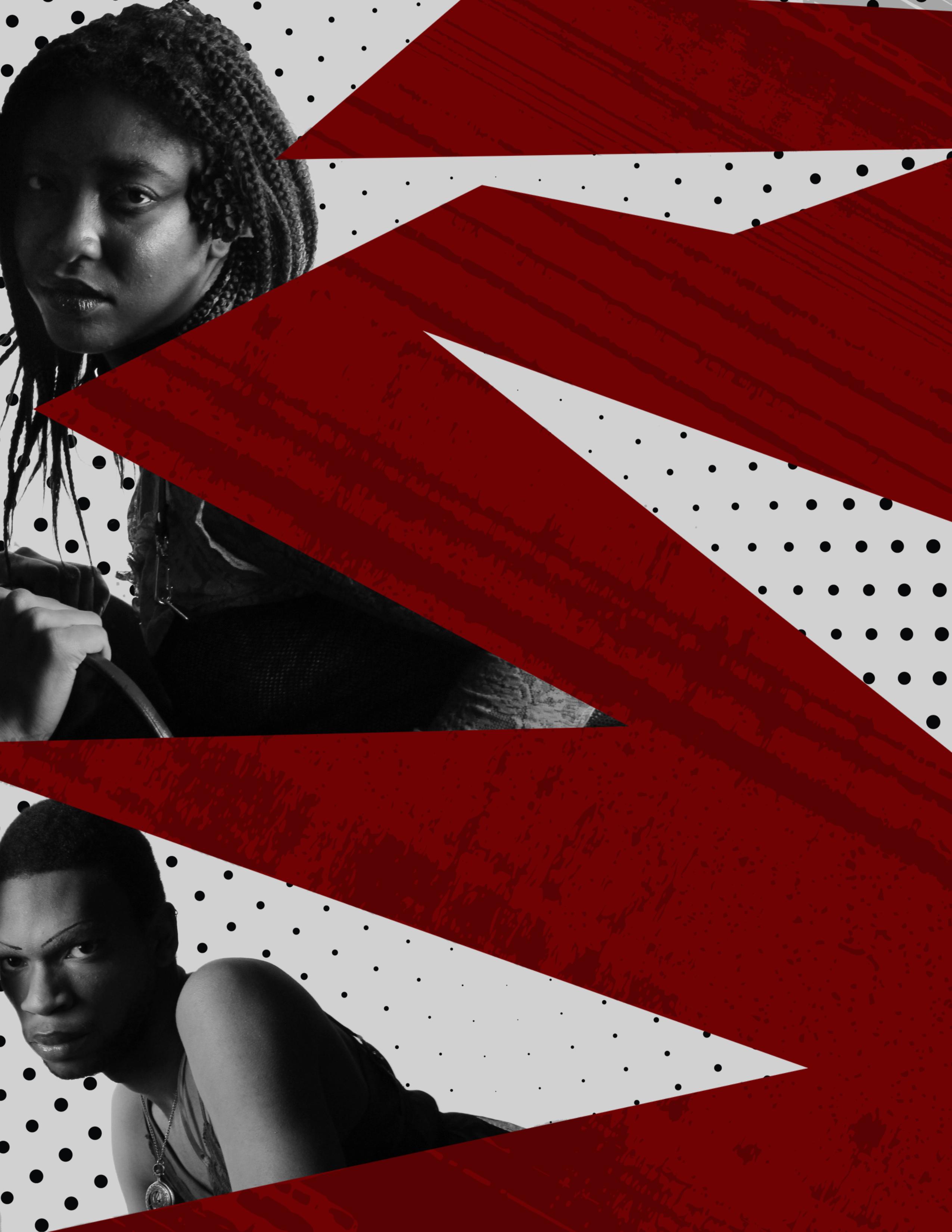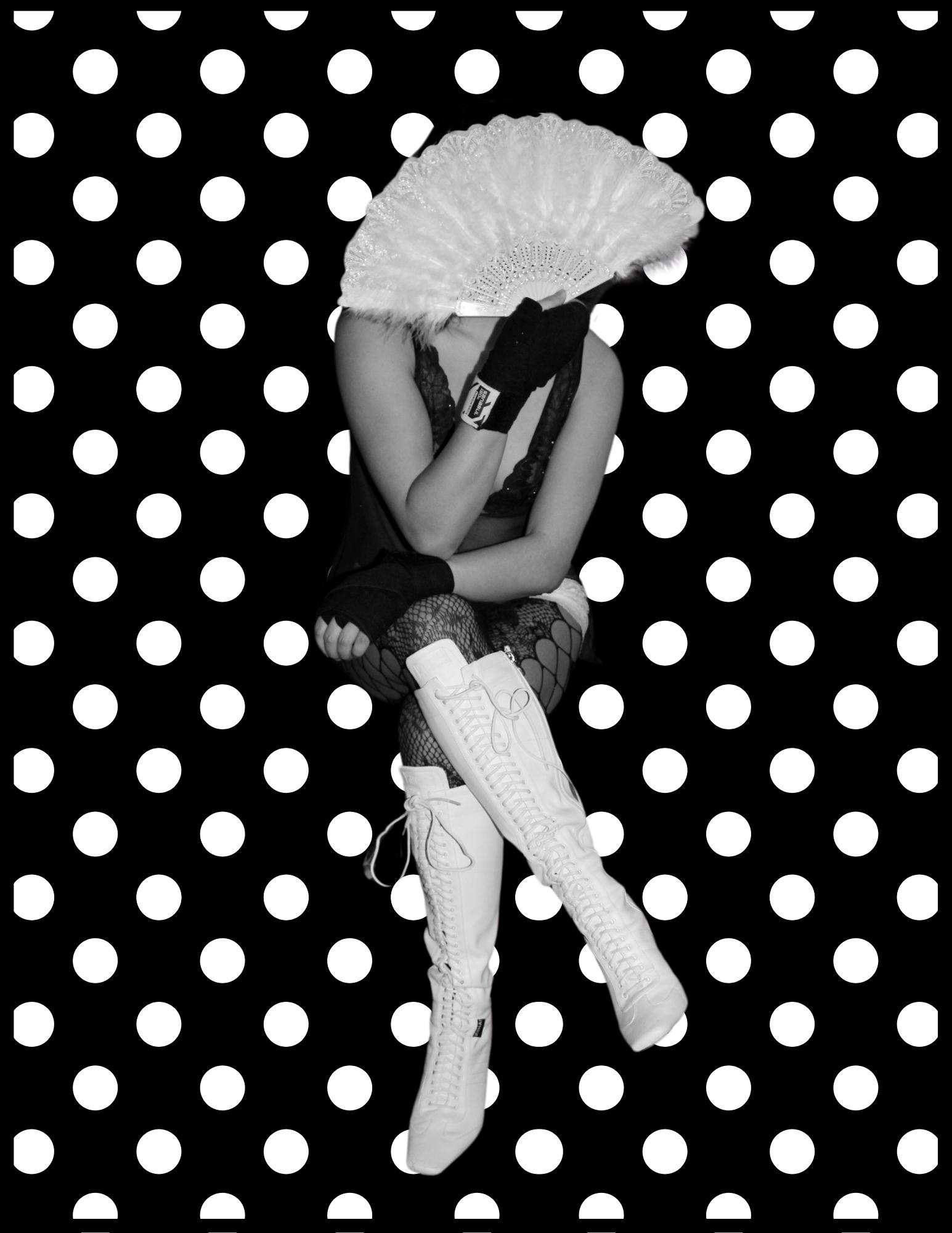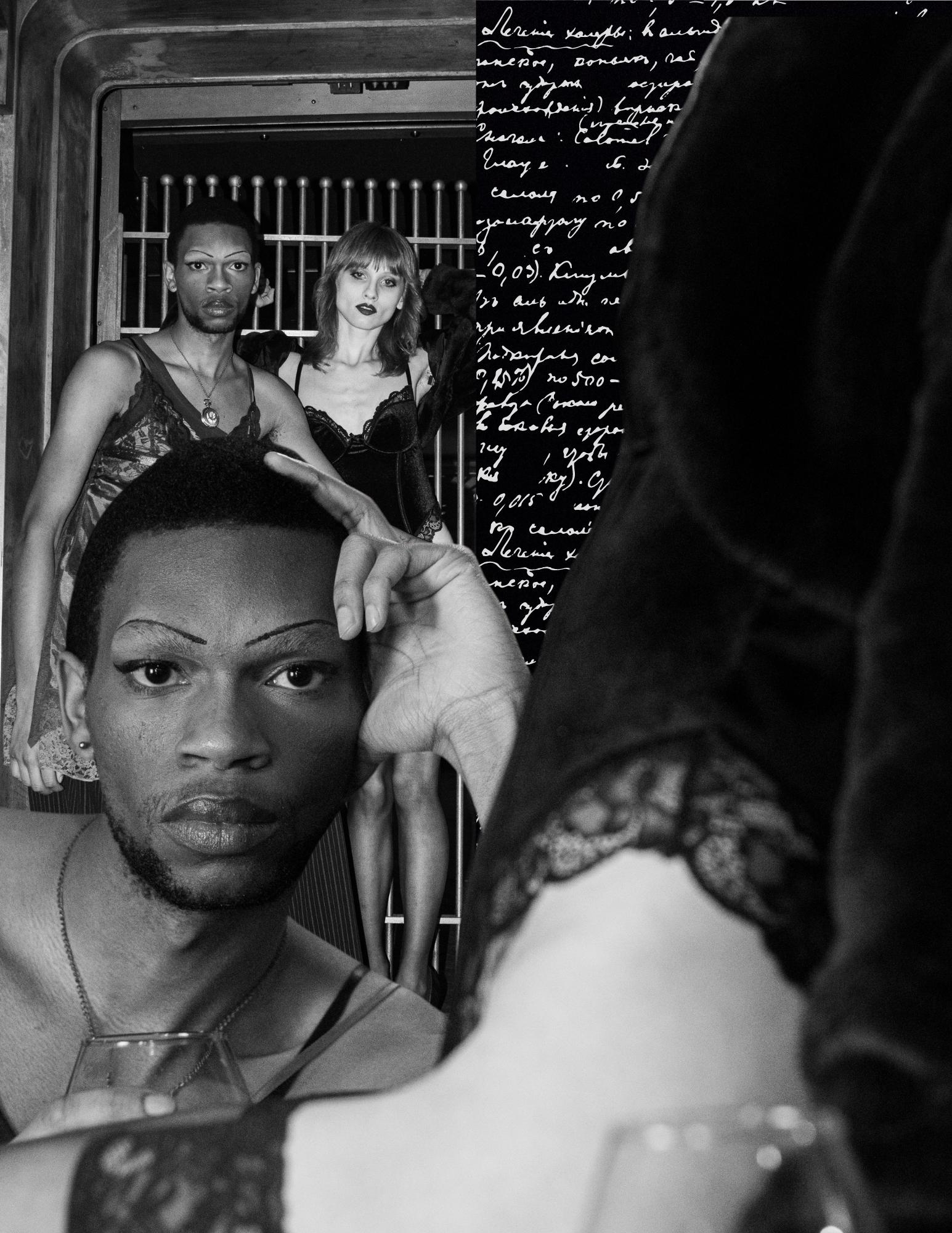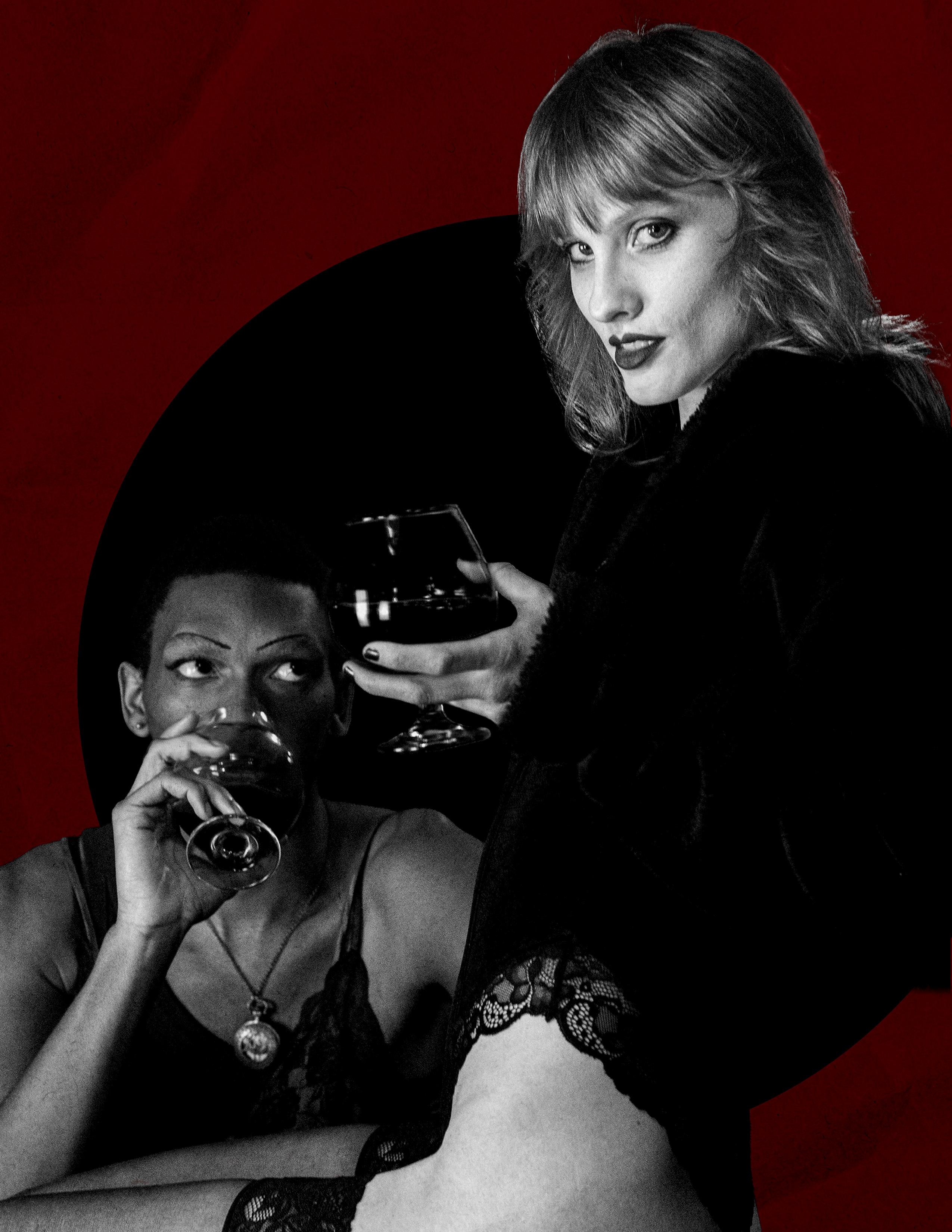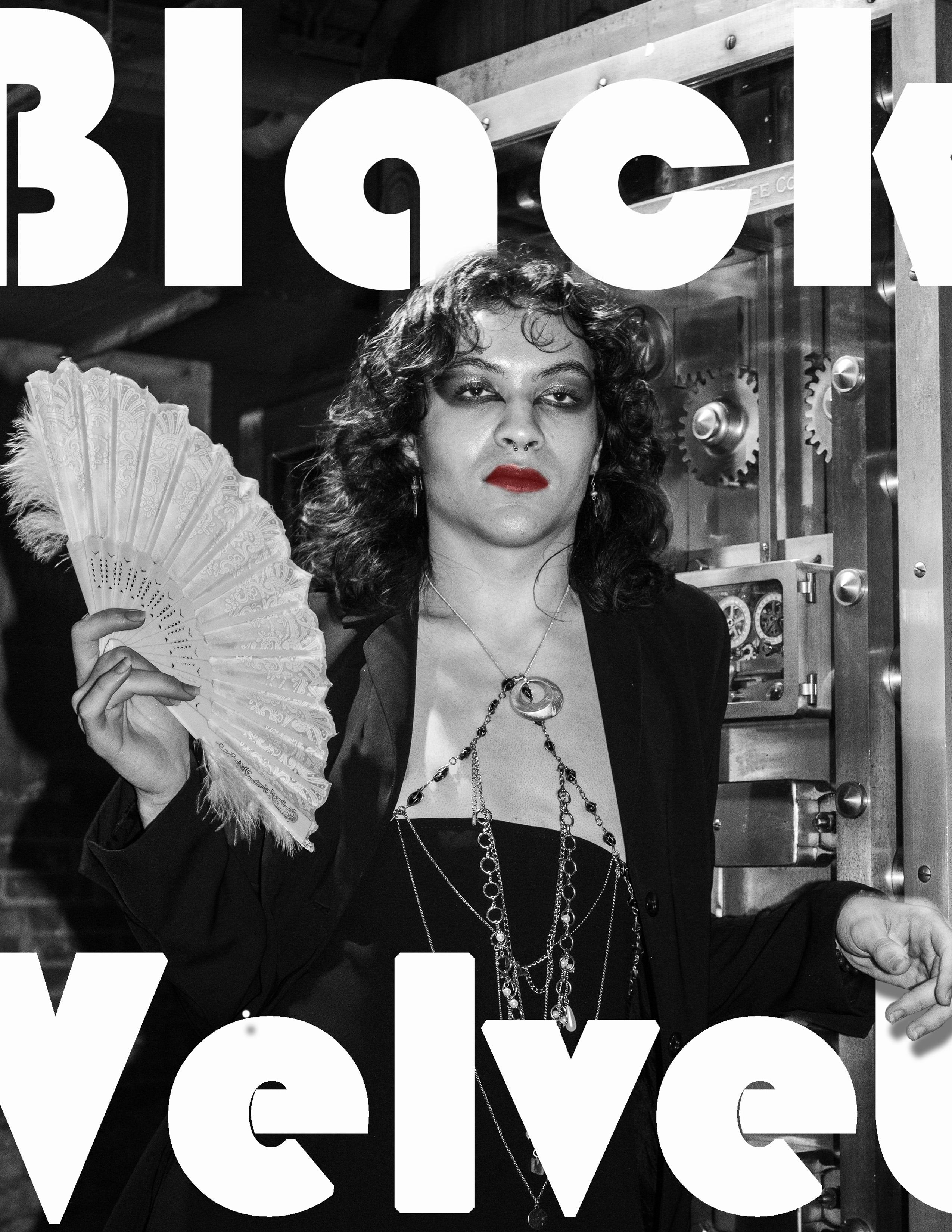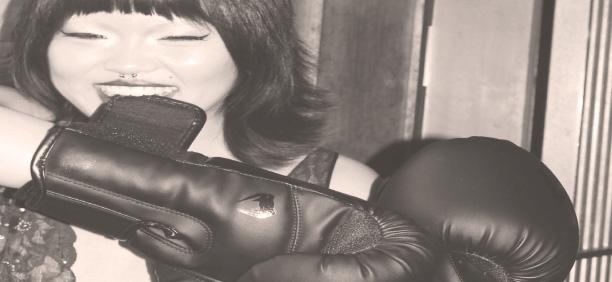Black velvet























Dear readers,
As repression and violence continue to target the lives and well-being of marginalized communities, various literatures and media have become intent on pursuing stories of oppression and subjugation. Although it is necessary to bring light to these injustices, it is equally important to promote stories of joy and celebration. The oppressed are not simply victimized observers of their own oppression; they are active participants in the fight against oppression and possess the agency to construct their own futures.
Historically––and even now––the topic and acts of sex by BIPOC and queer communities have been regulated and a source of taboo. However, such challenges do not void the marginalized of feeling the electric and innate human desire to create, feel, and love. In a society of sexual repression, sex and “sexiness” may also be expressed through passions, intimacy, vulnerability, and ultimately, validation of one’s self without the desire and need for external validations.
For our first issue of spring 2024, Lincoln Miller was inspired by Madonna’s provocative and controversial book titled, Sex. With the turn of each page, readers are engulfed by erotic photographs depicting sexual acts, nudity, kink, as well as stories and poems illustrating explicit details of sexual fantasies and ideas. Finding ourselves at odds at how to reformulate this concept to become our own original idea, discussions regarding the jarring centrality of physical sex in American society and in turn, the lack of emotional connection circulated. We also recognized that sex is not fundamental or desired for some identities and people. In formulating ALT’s own interpretation and thoughts about the Sex book and sexuality, we found ourselves asking: What can we learn about sex and our sense of self beyond the realm of physicality?
We hope you ponder this question as you read through the variety of pieces and poems we have shared with you. We would like to extend a thank you to our readers who continue to support our work and publication. Enjoy our 21st issue, “Black Velvet.”
Charlene Huynh Editor-in-ChiefExecutive Board:
Chief Executive O icer: Bridget
Flannery
Editor in Chief: Charlene Huynh
Secretary: Kaelin Silas
Model Coordinator: Jayda Bessel
Fashion Directors: Olivia Mabbott & Emily Wright
Graphics Director: Kaelin Silas
Makeup Director: Rachel Neviaser
Photography Director: Lucy Gillard
Social Media Director: Morgan
Sutter
Writing Directors: Leah Maitland & Jillian Turner
Business:
Isabelle Bogan
Morgan Sutter
Fashion:
Redet Dereje
Jayda Bessel
Marissa Blazer
Mason Borchardt
Emily Wright
Jules Xiong
Kennedy Shepard
Graphics:
Lucy Kenevan
Madie Knilans
Payton Mattson
Kaelin Silas
Mila Thelen
Mirabella Villanueva
Makeup:
Macy Chen
Lizzy Frusciante
Models:
Gwynedd Allen
Malachi Clark
Charlene Huynh
Ituoghirisic Igoni
Axel Semidey
Jules Xiong
Photography:
Kai Heverly
Chris Norcross
Natalie Pricer
Kaelin Silas
Sarah Squires
Videography:
Rishaan Kumar
Leah Rodriguez
Writing:
Jai Deans
Nikhil Gudladana
Maddy Hu
Lincoln Miller
Sydney Moyers
Zoe Zanussi
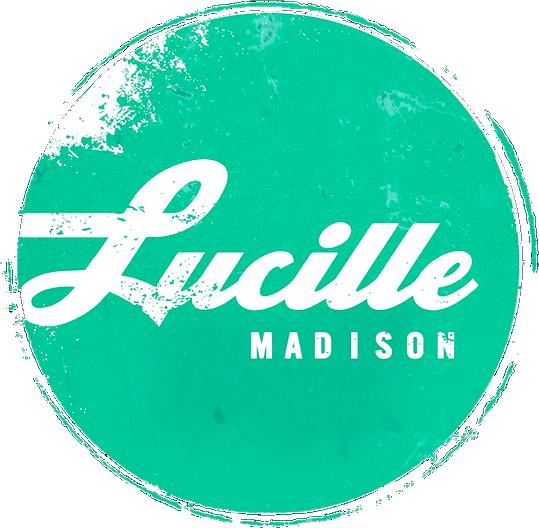
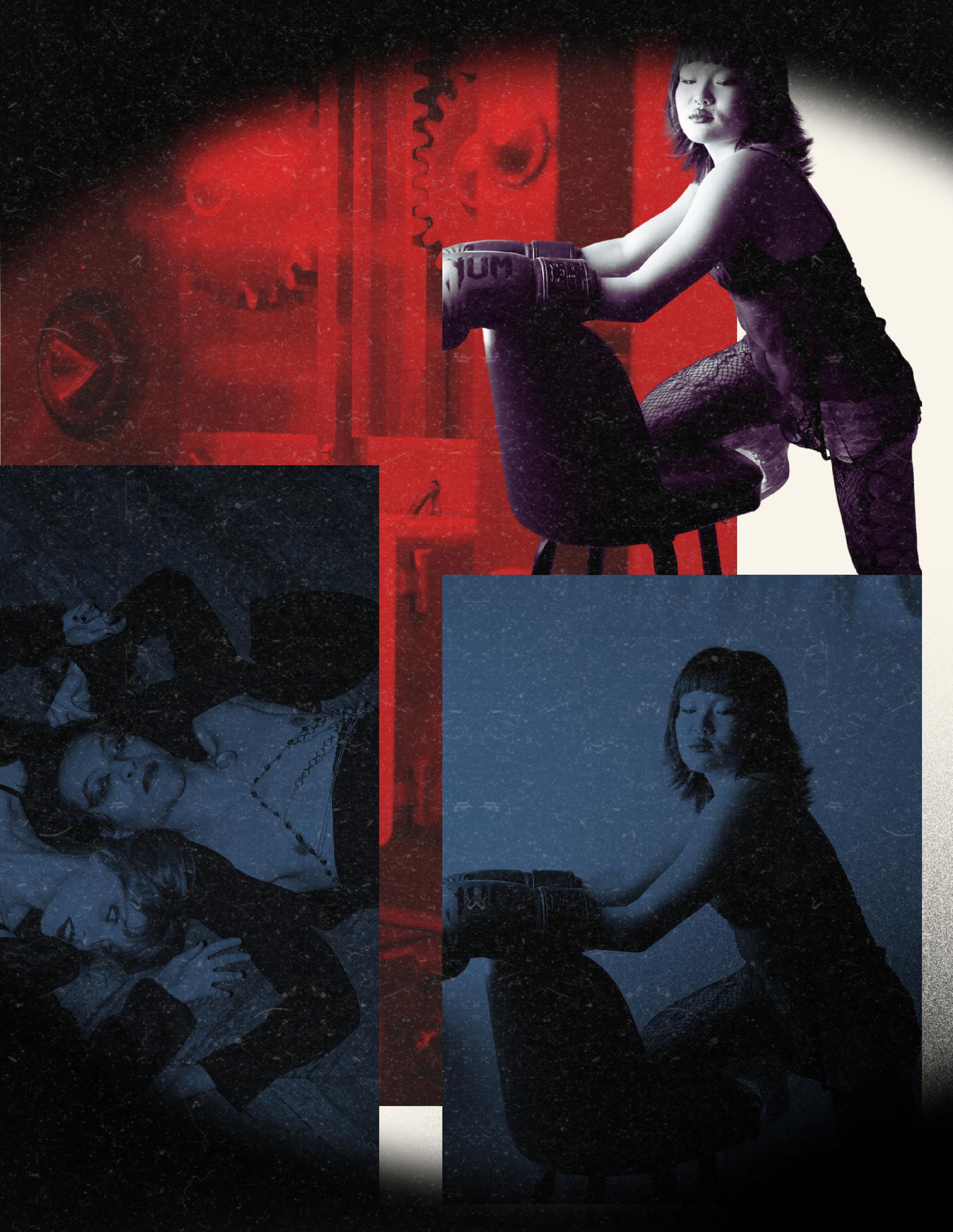

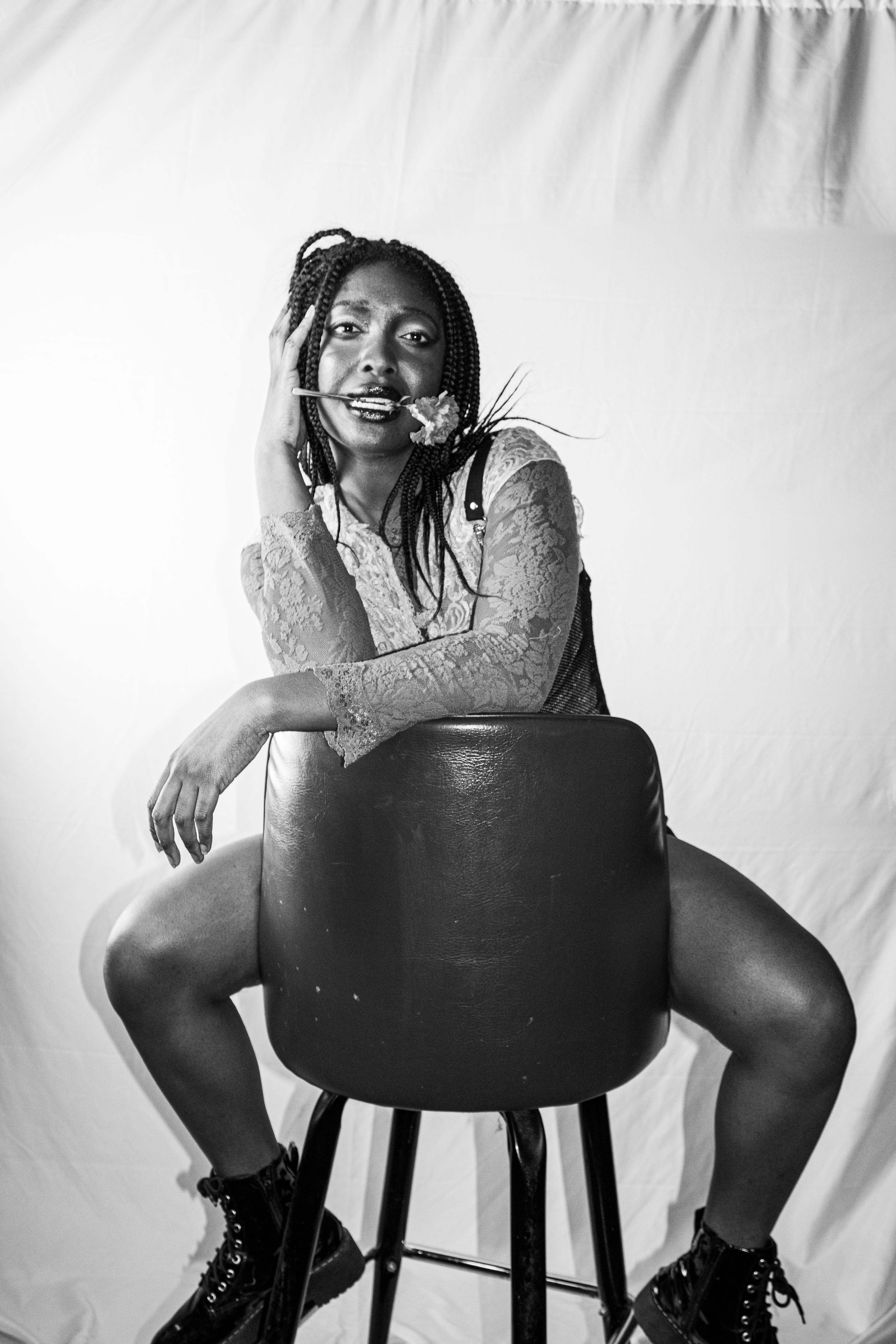










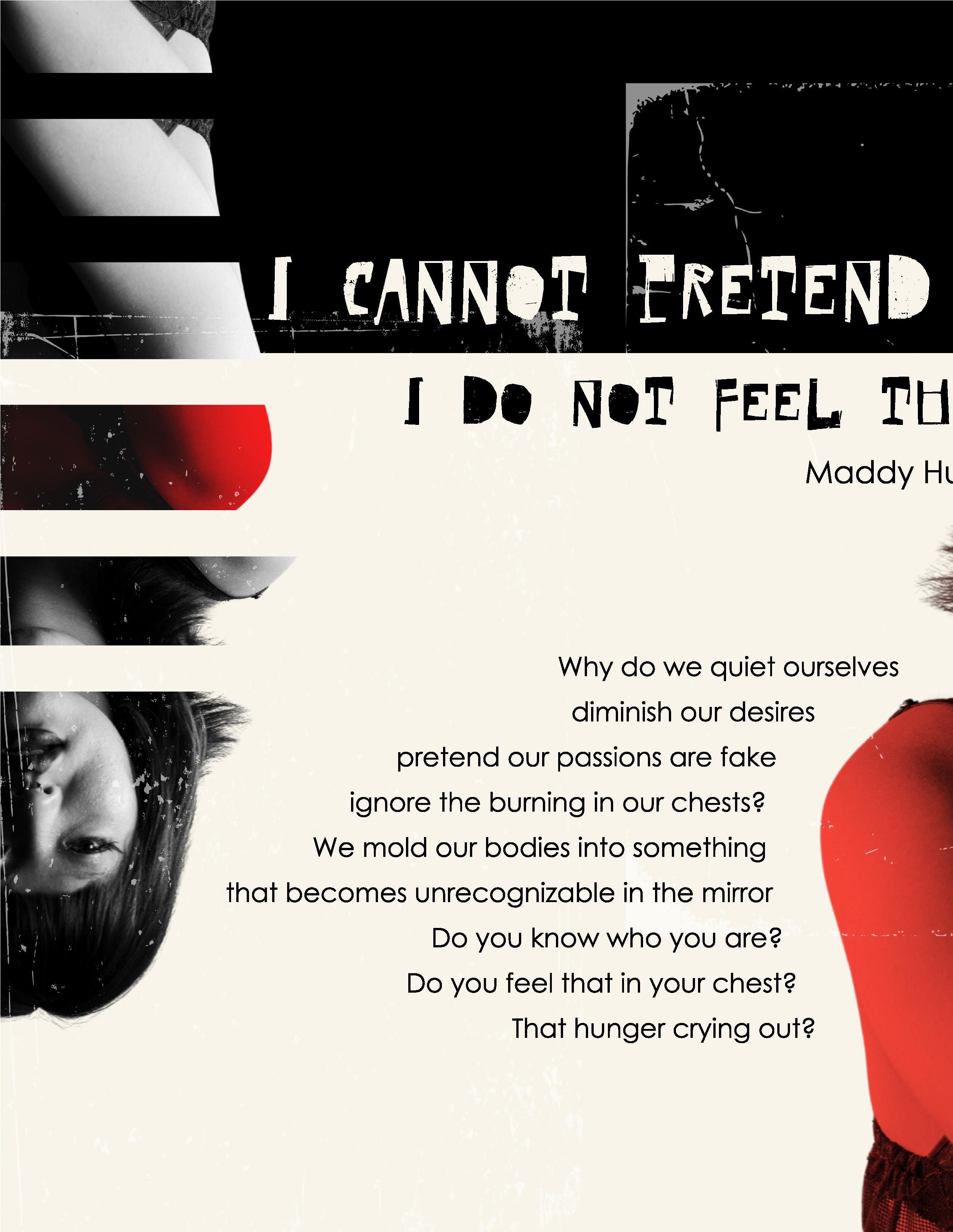
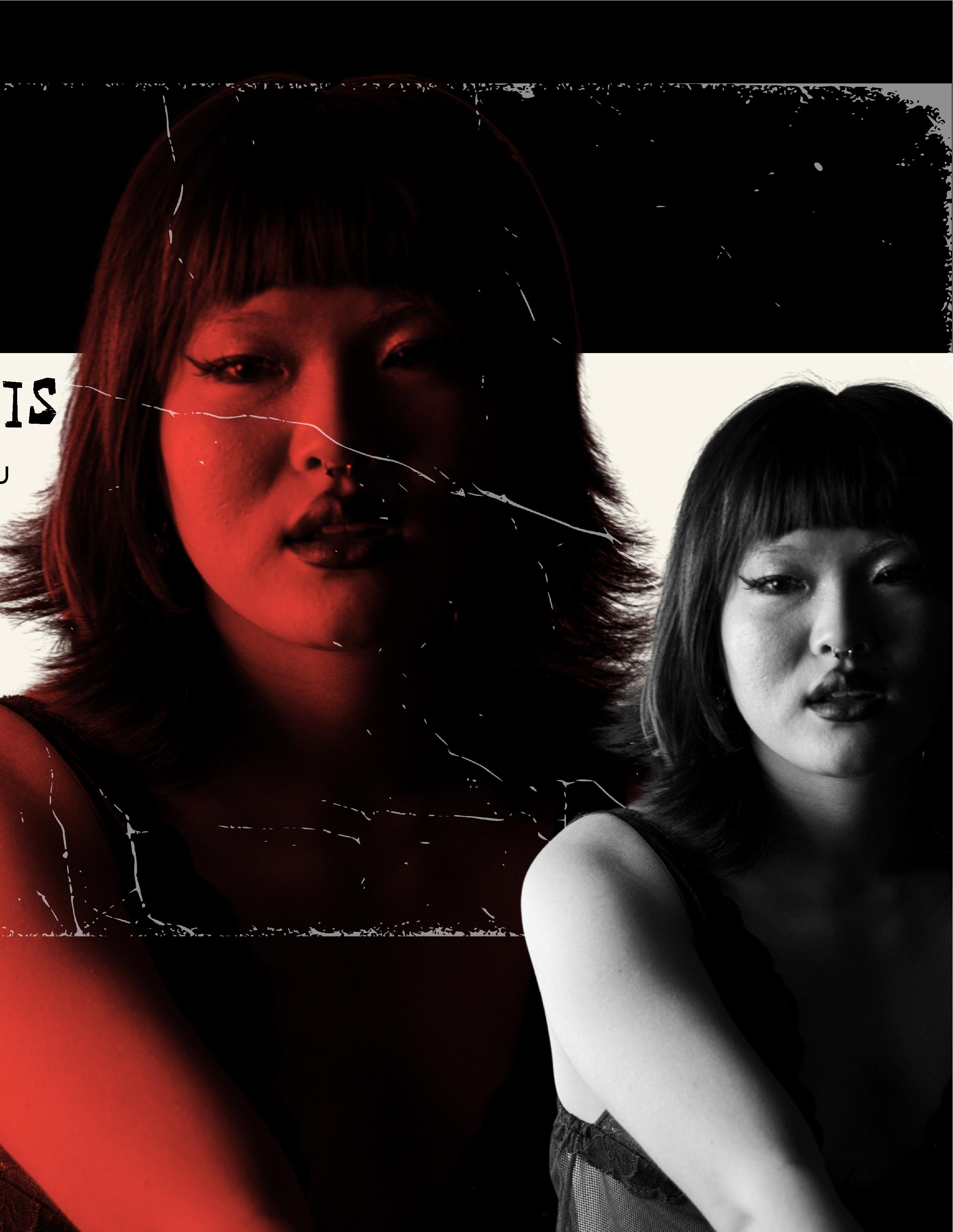

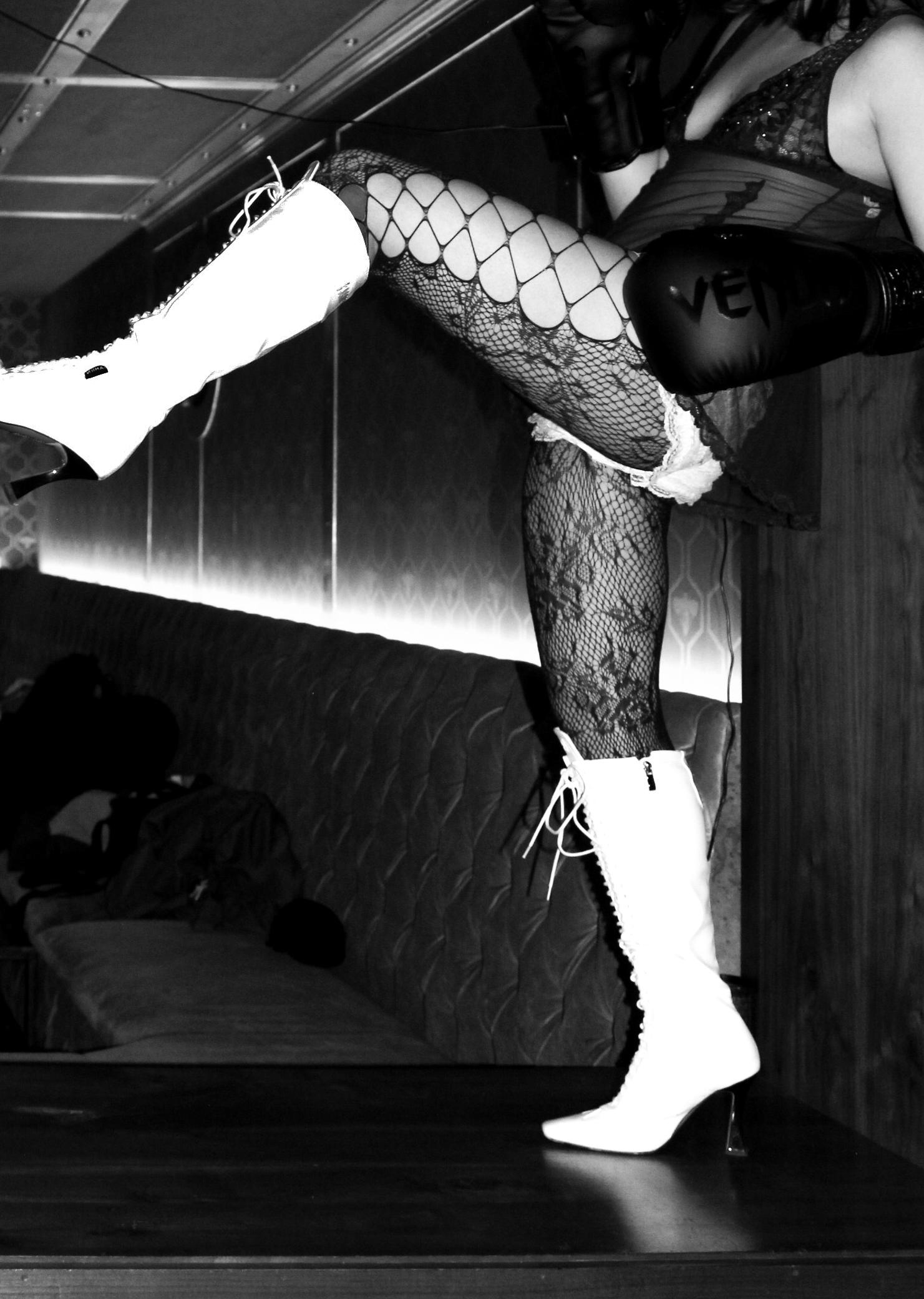
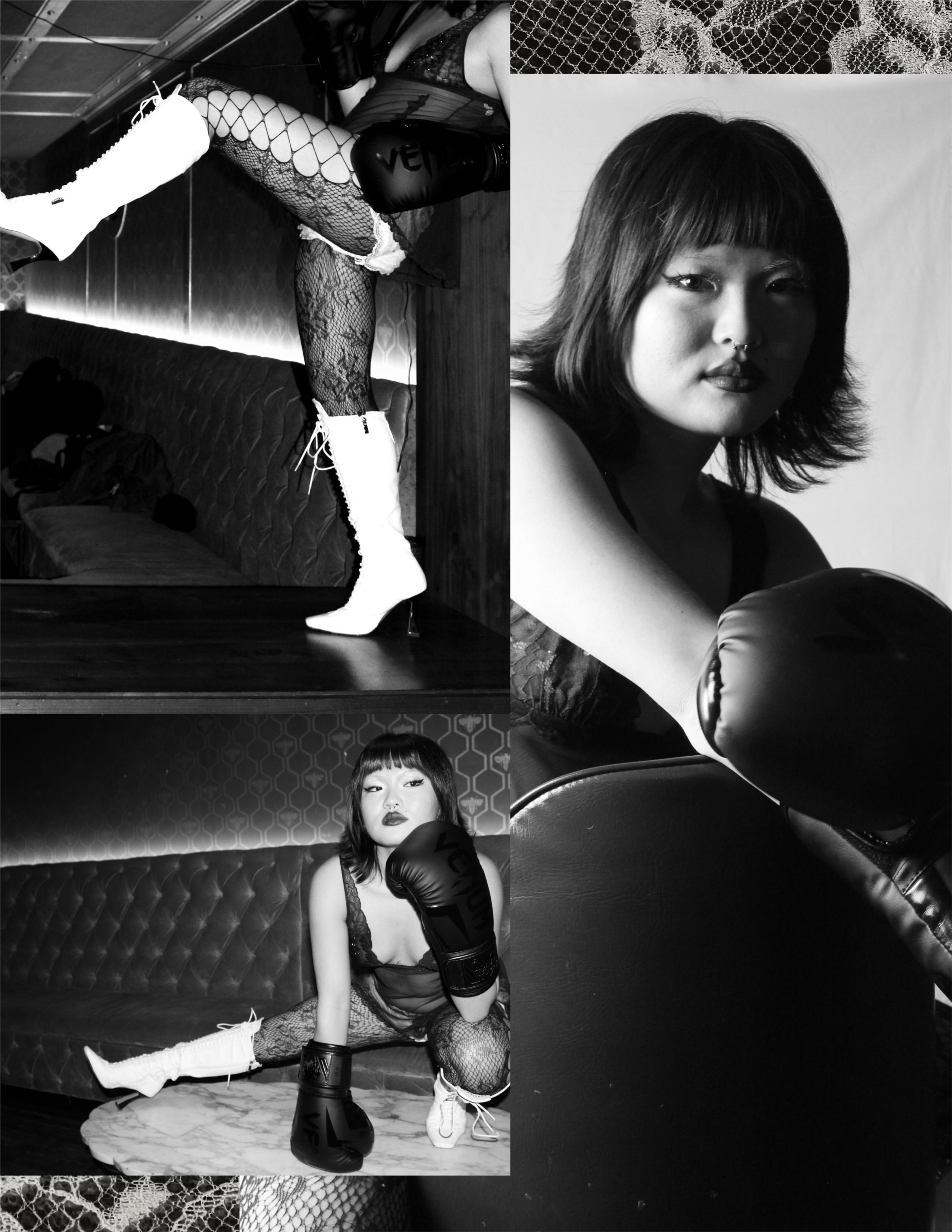
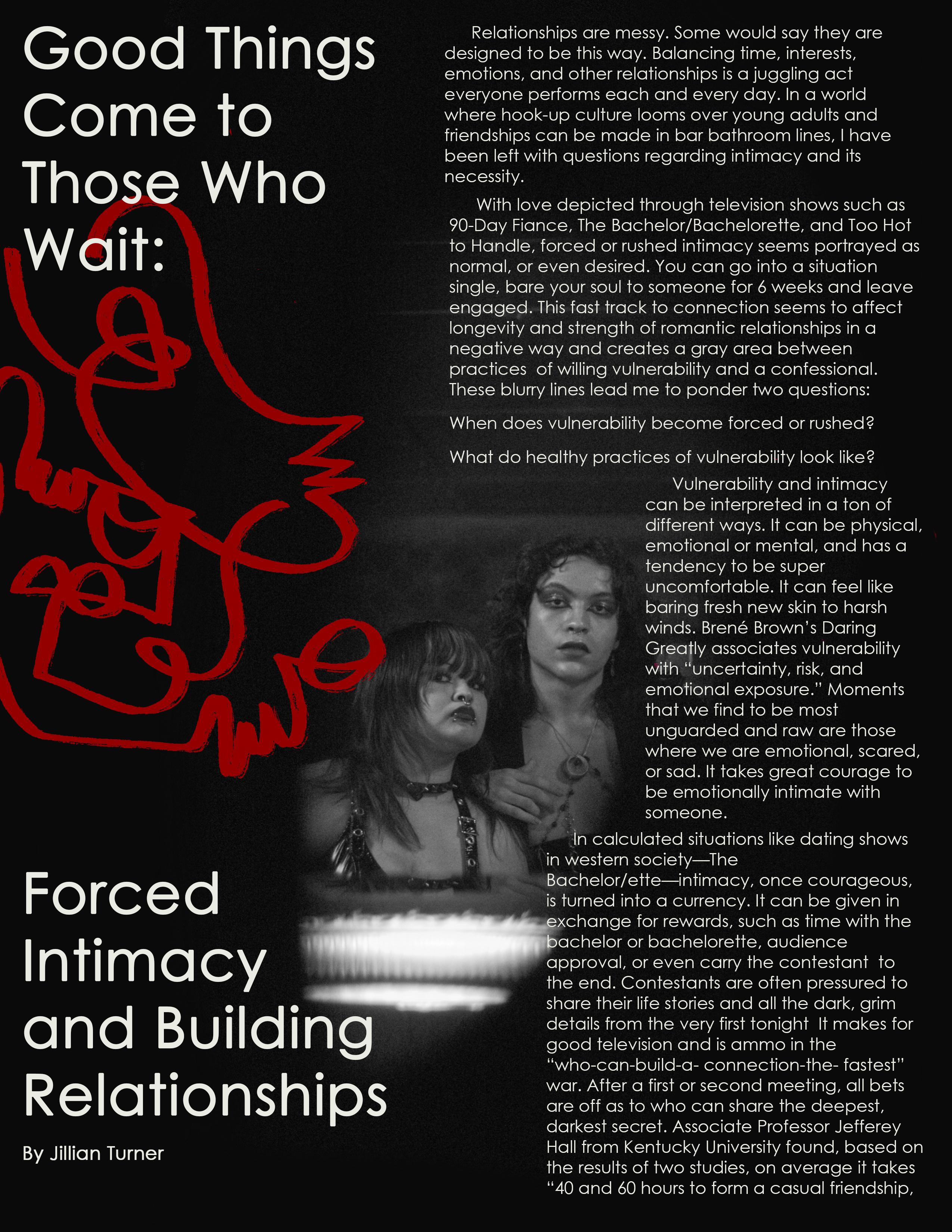
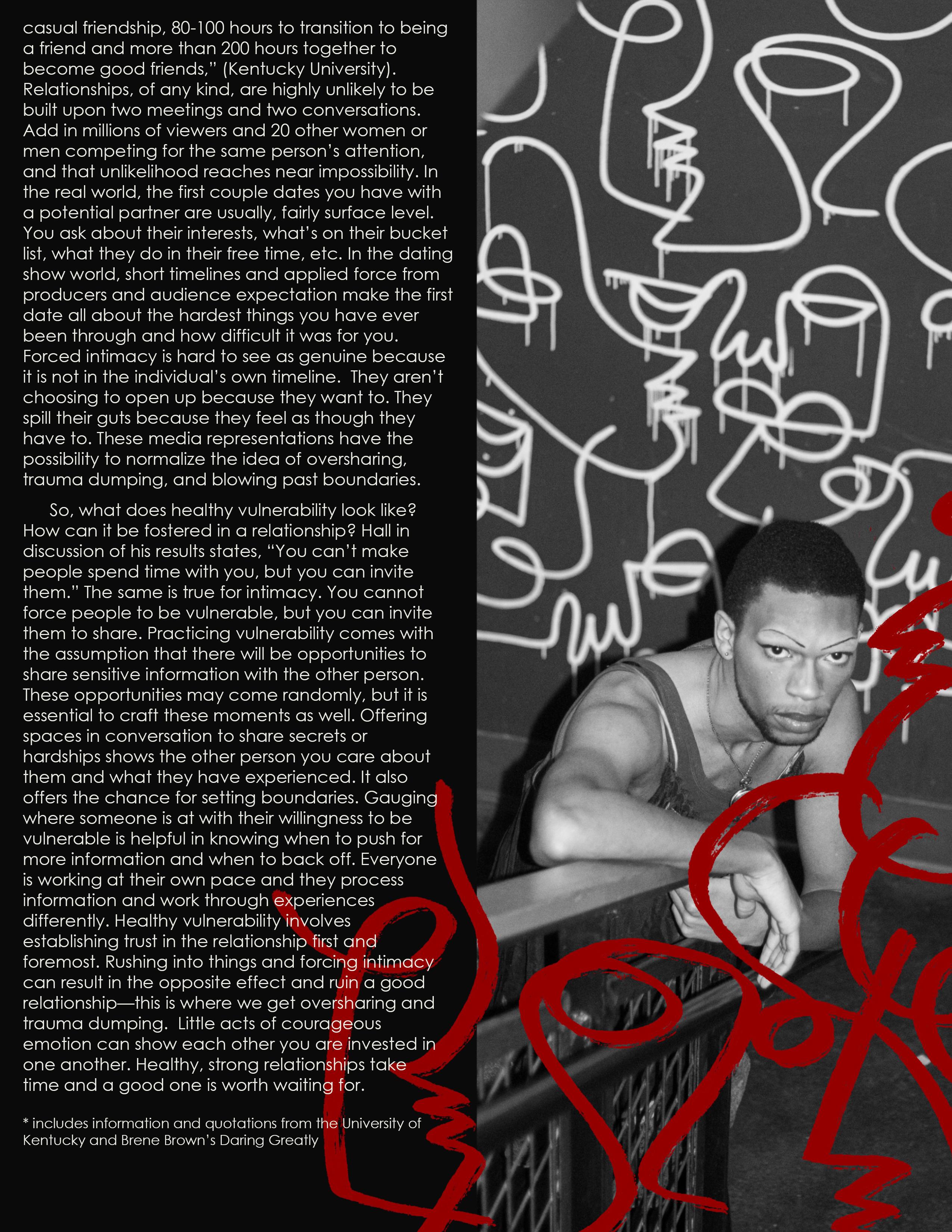
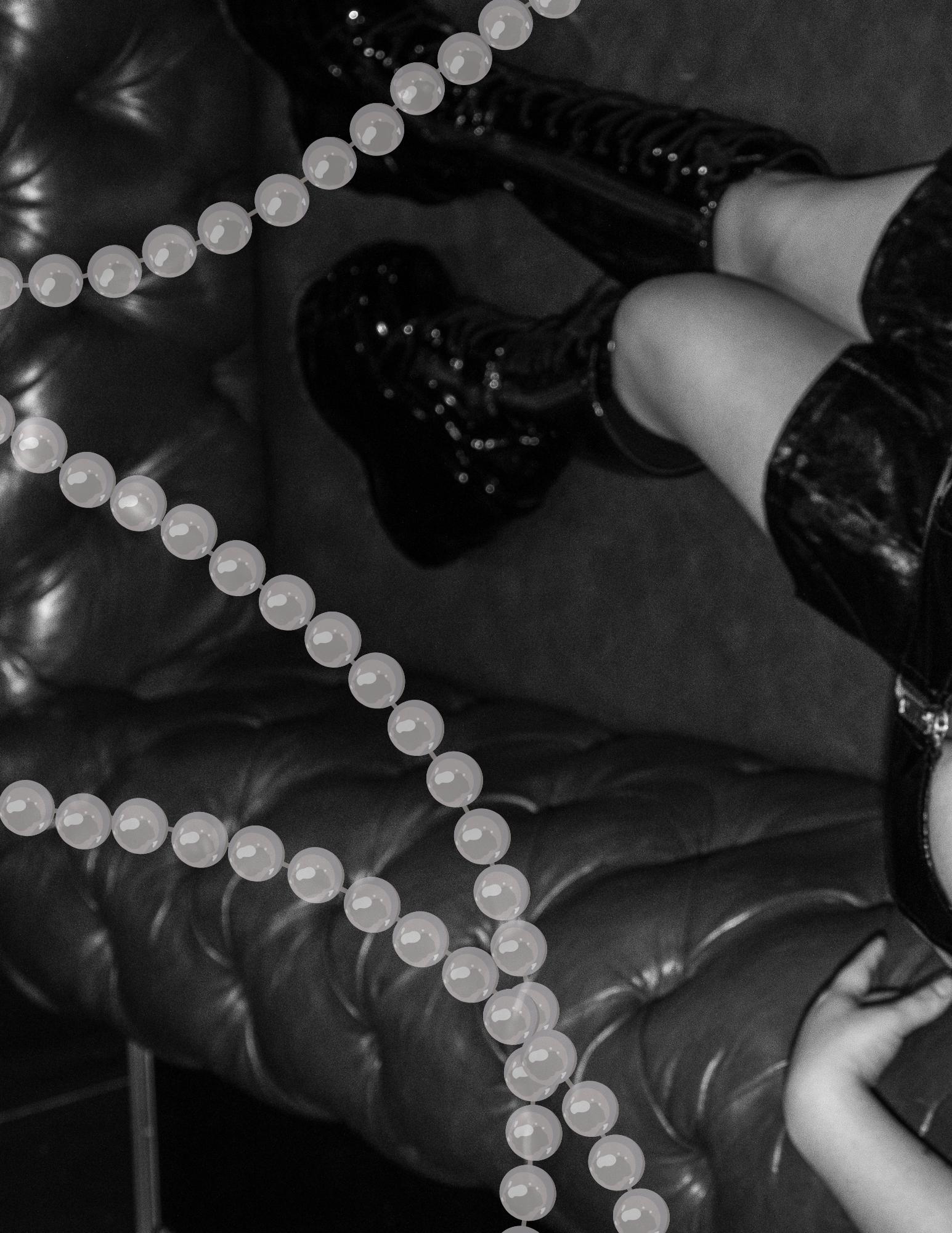
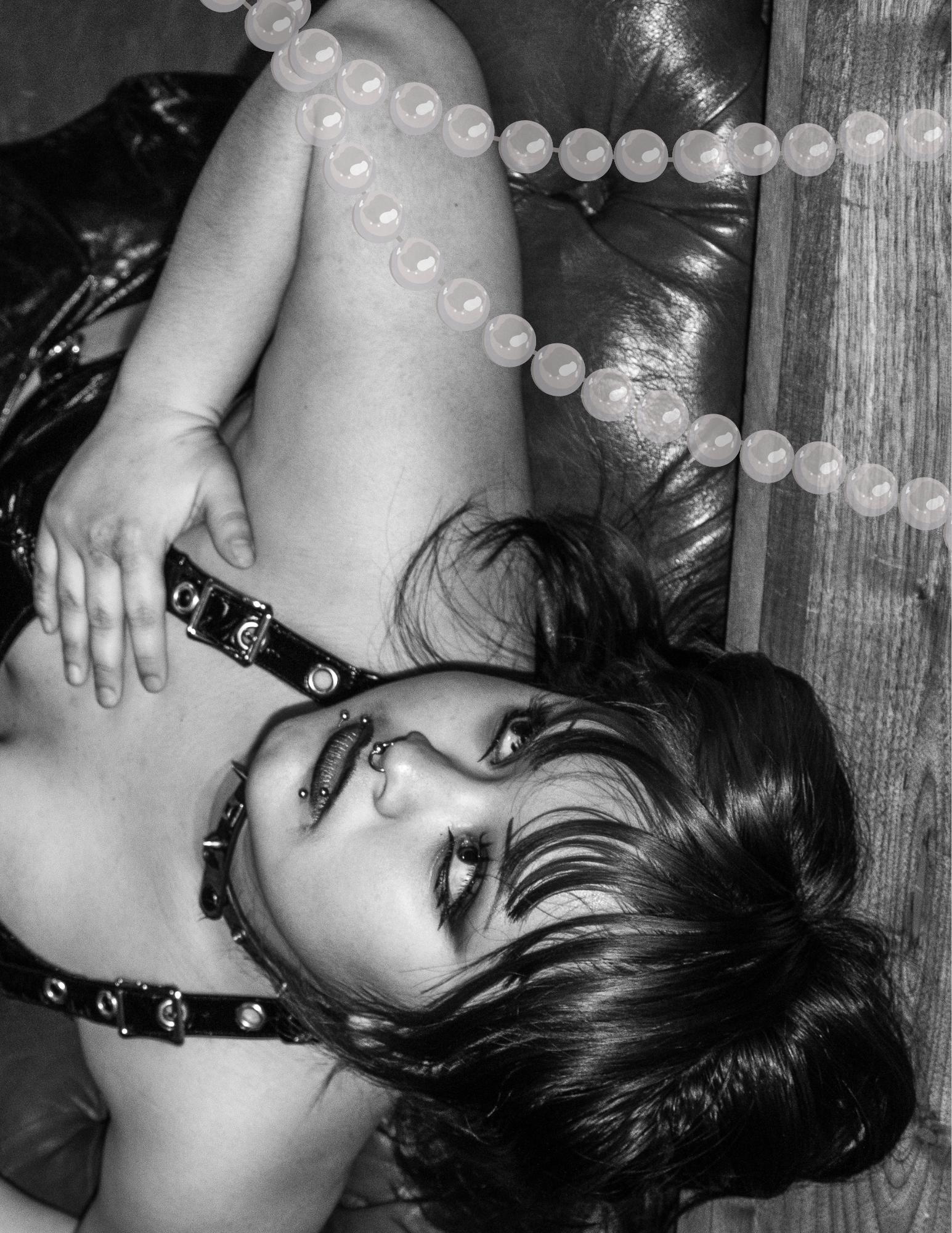

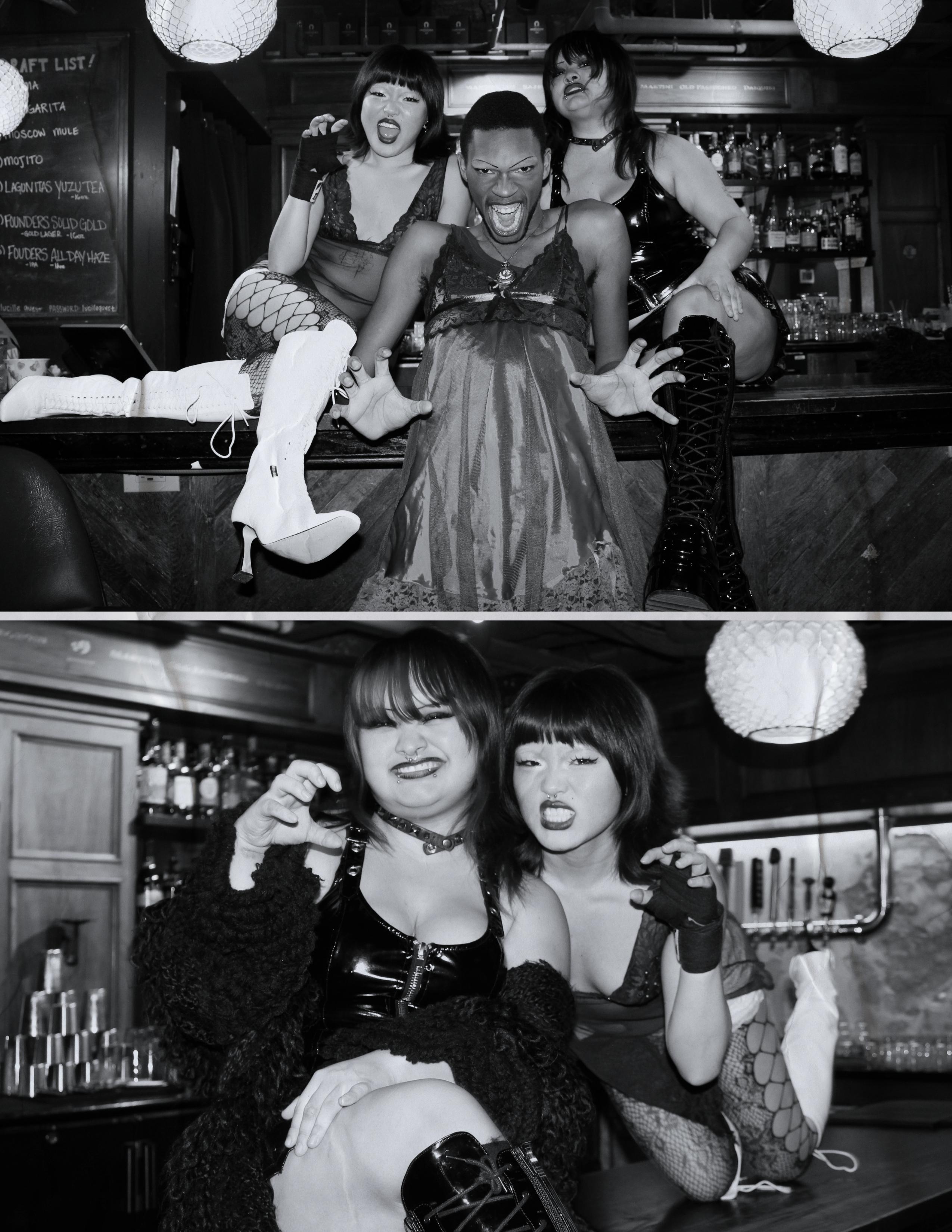
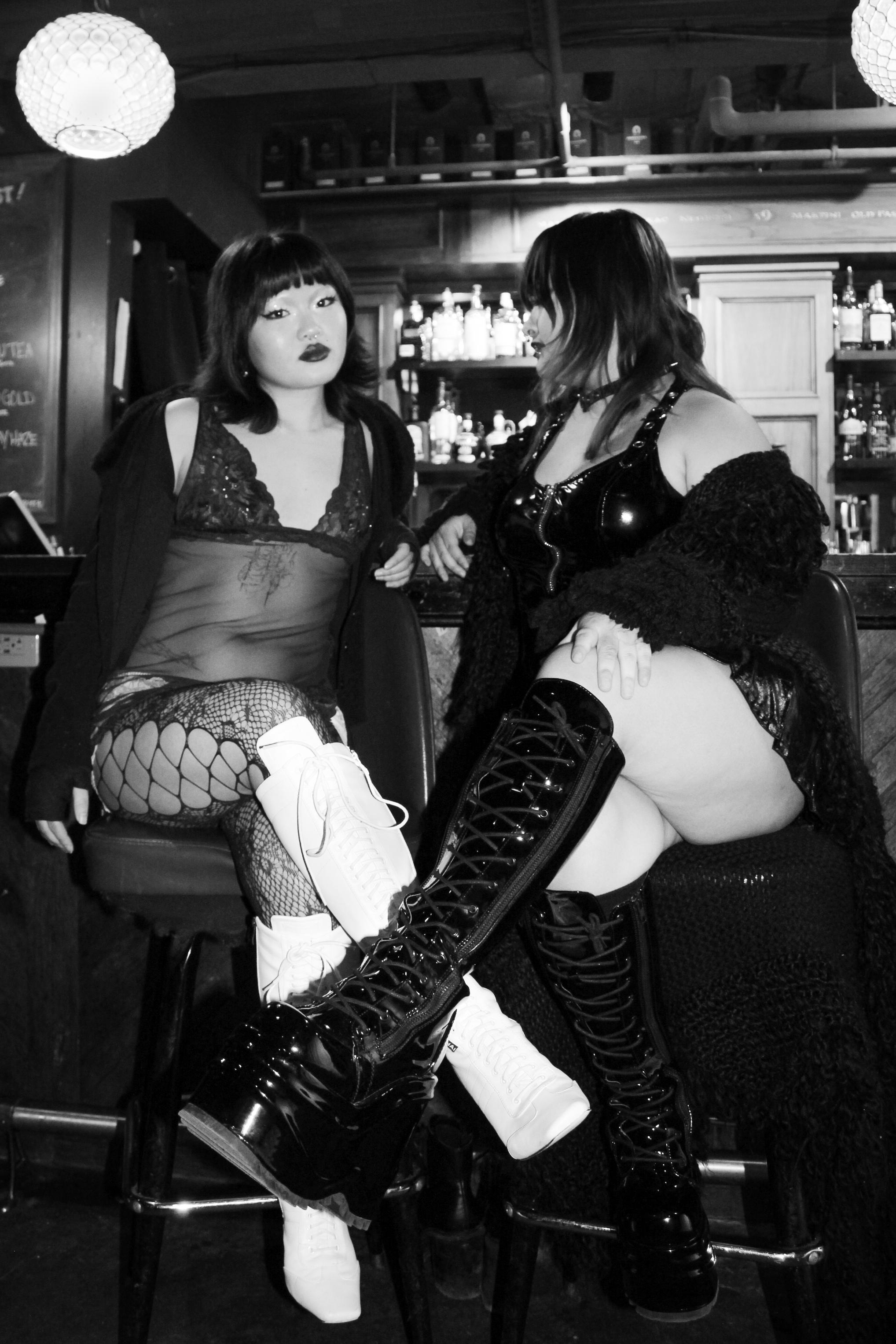

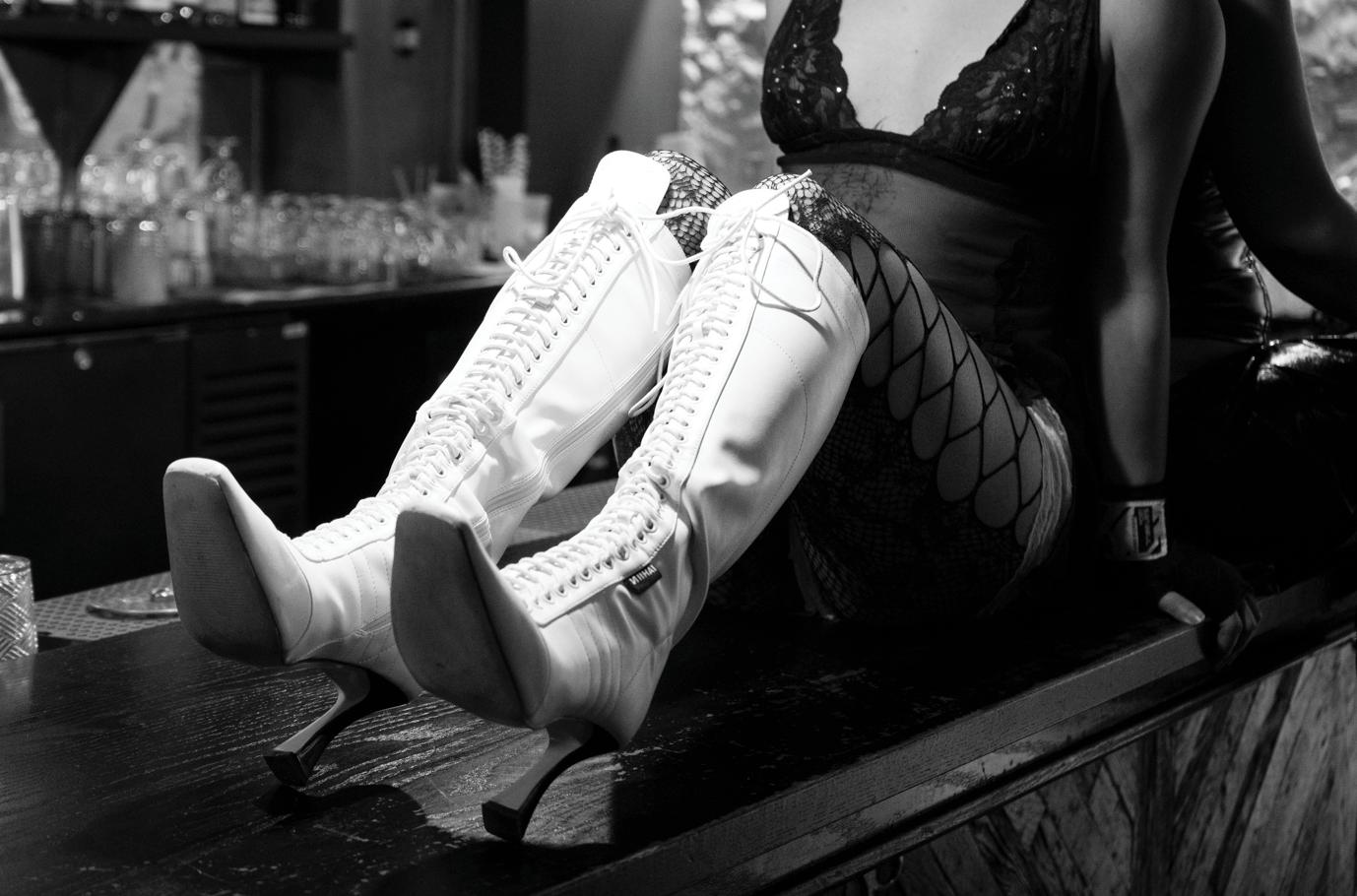

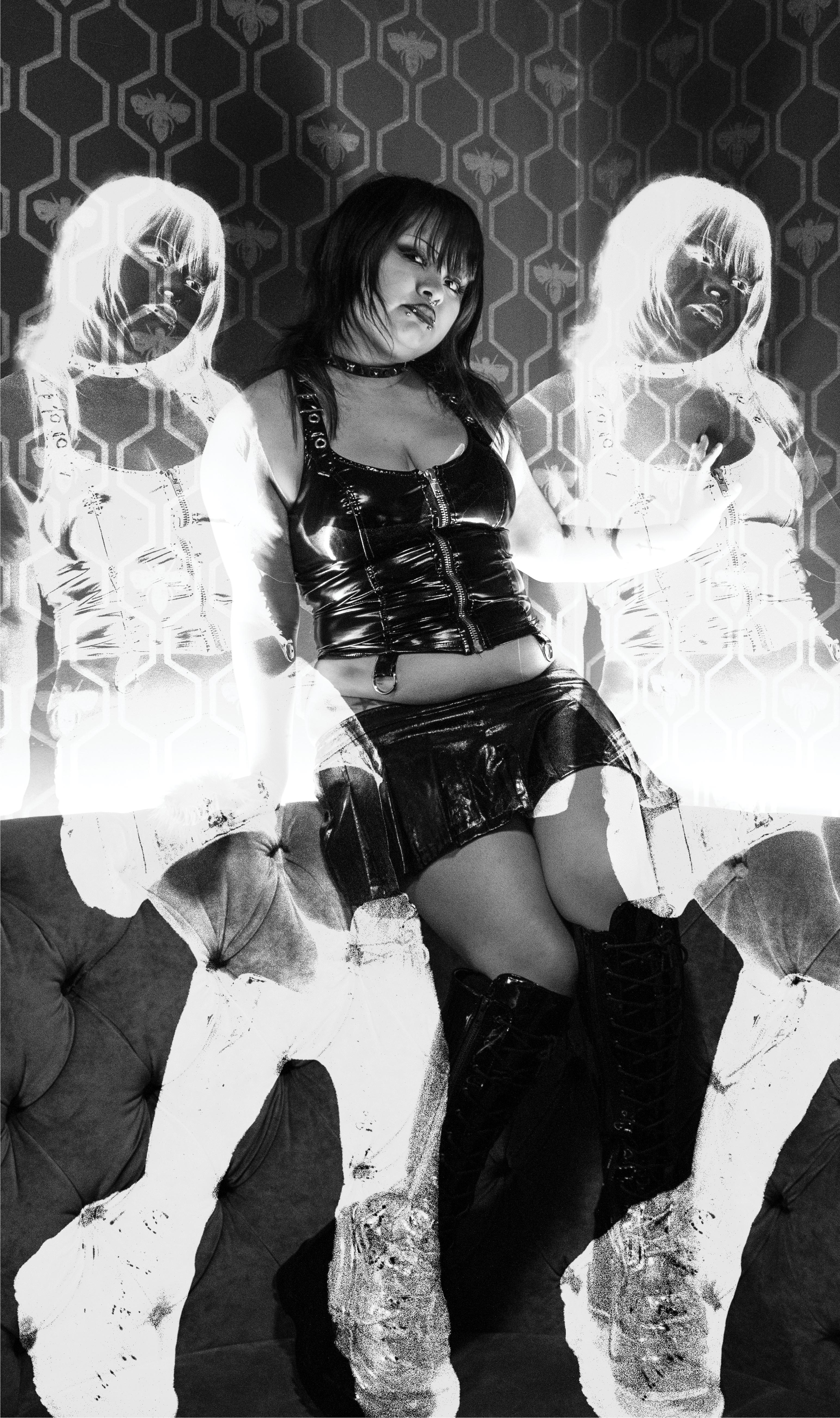
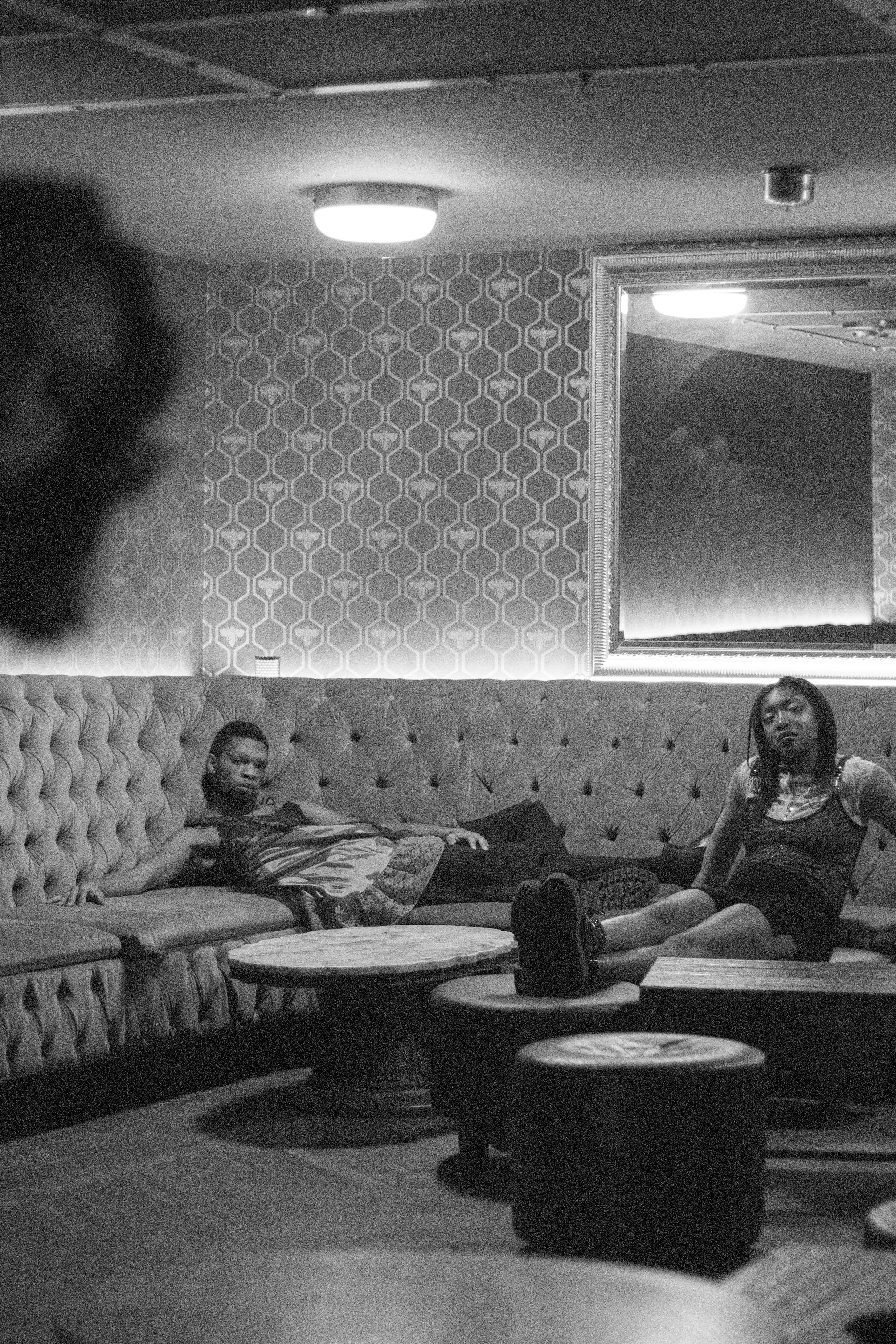
A poem by
Jai Deanscreate me under your eyes clothed in denim im painted hiding stretch marks eclipsed by russet patches of skin in shiny lotioned thighs covered in shadows by gloss on my lips
create me under your vision sparkling im bejeweled my ears gauged by a surgical steel button foot pressing against the feeding of the fabric
create my curls in your image under your fingers shielded in jojoba remnants like castor casts a silk bonnet vestige in moonlight silver rings like faces like fingers like hands
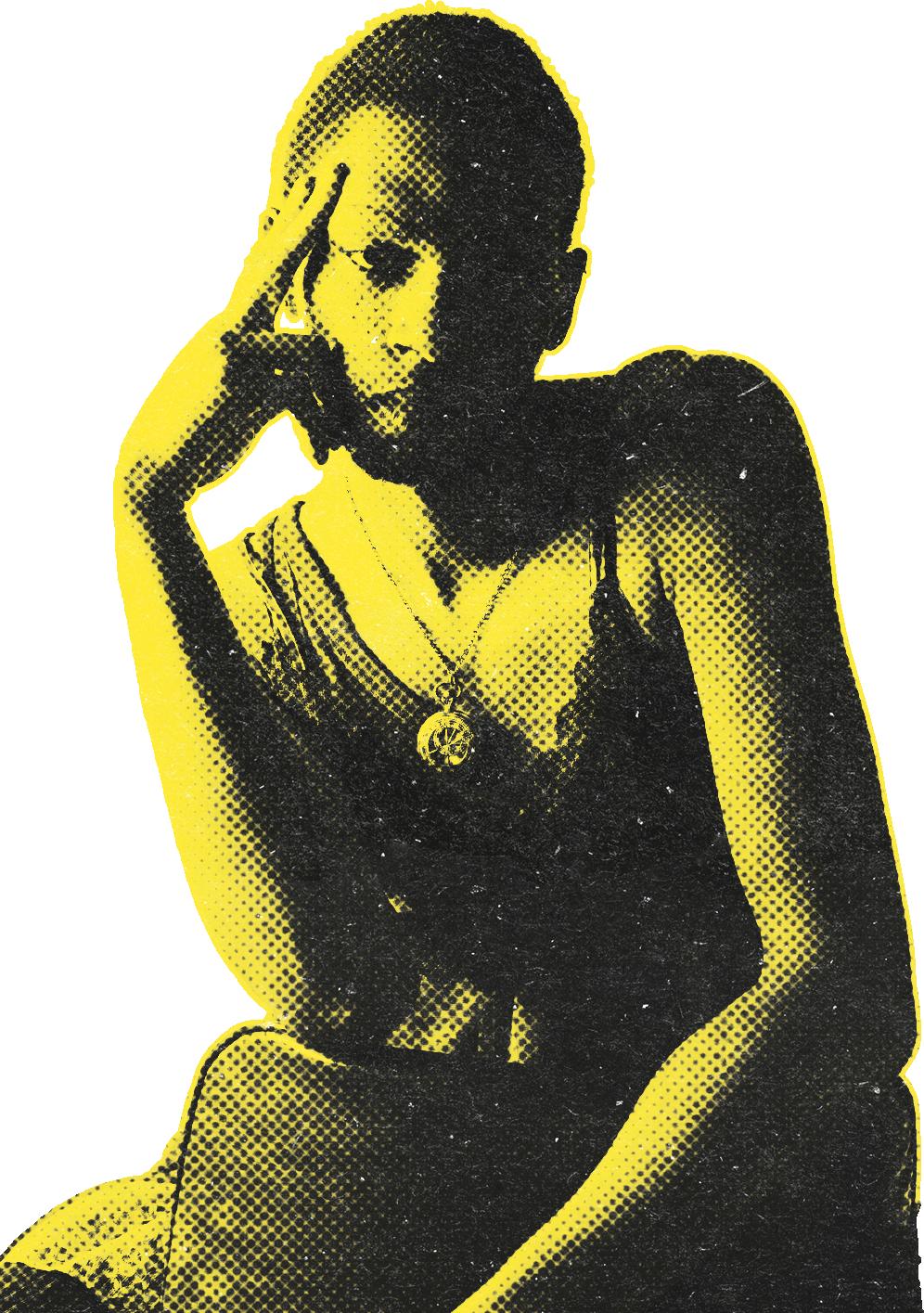
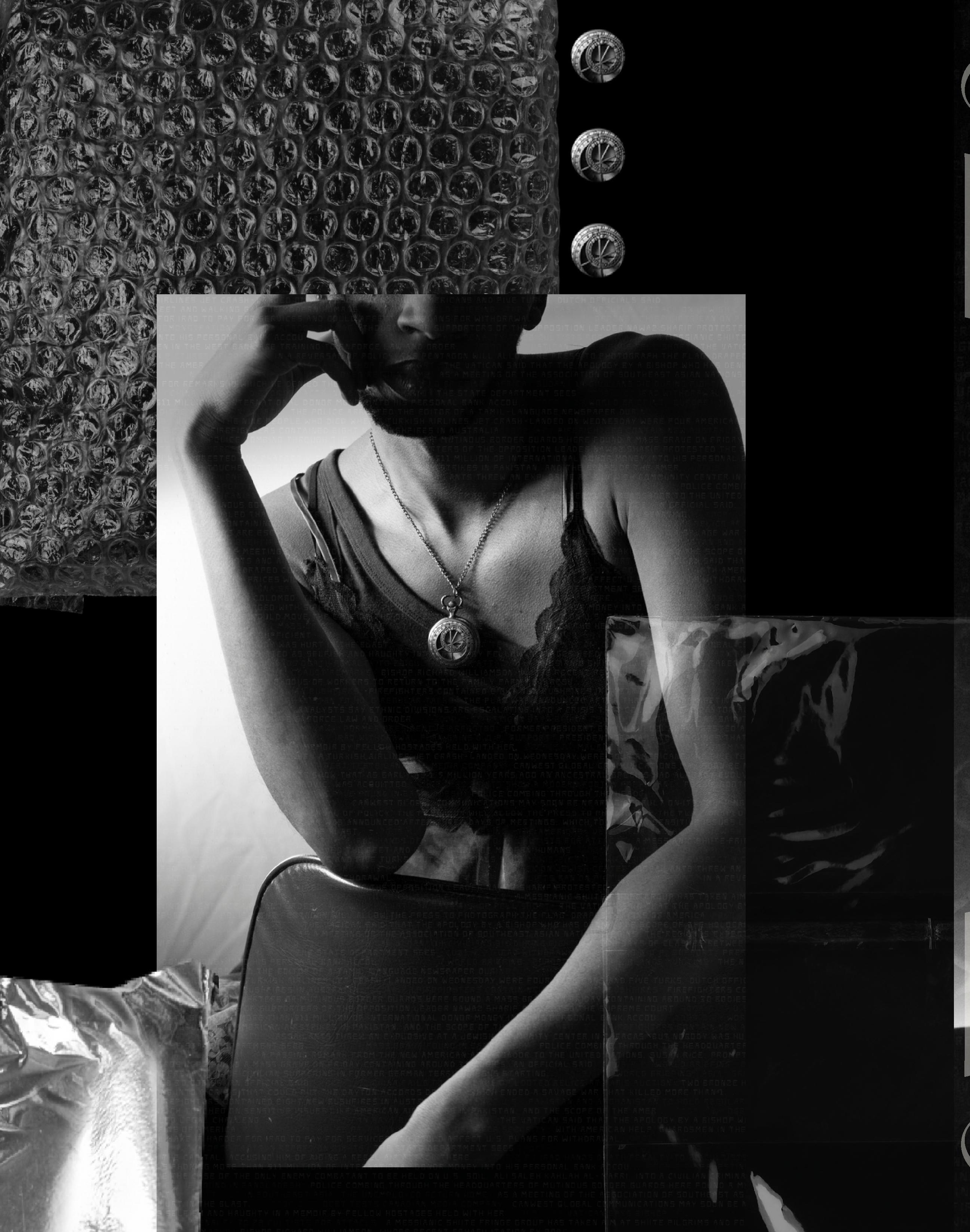
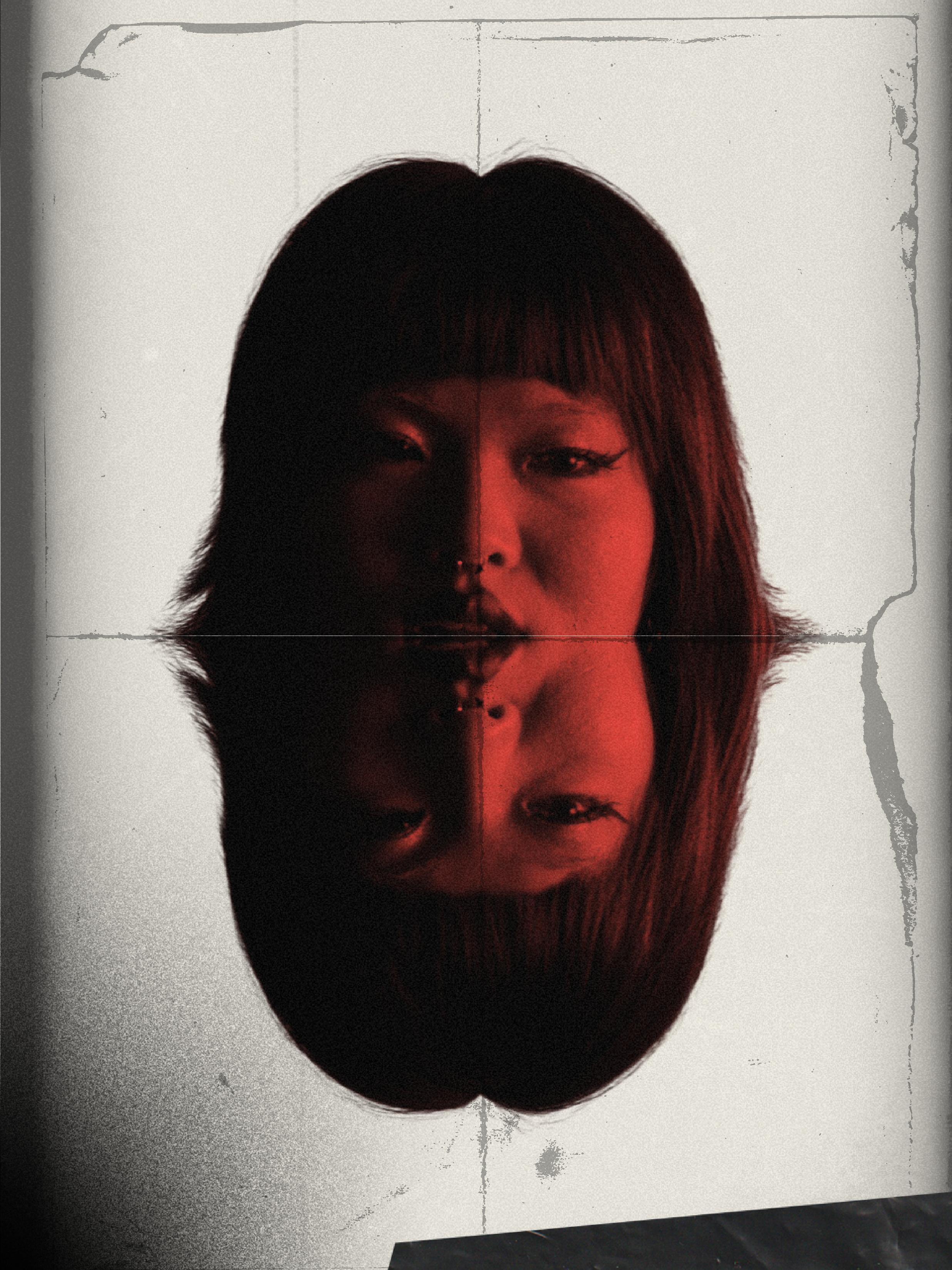
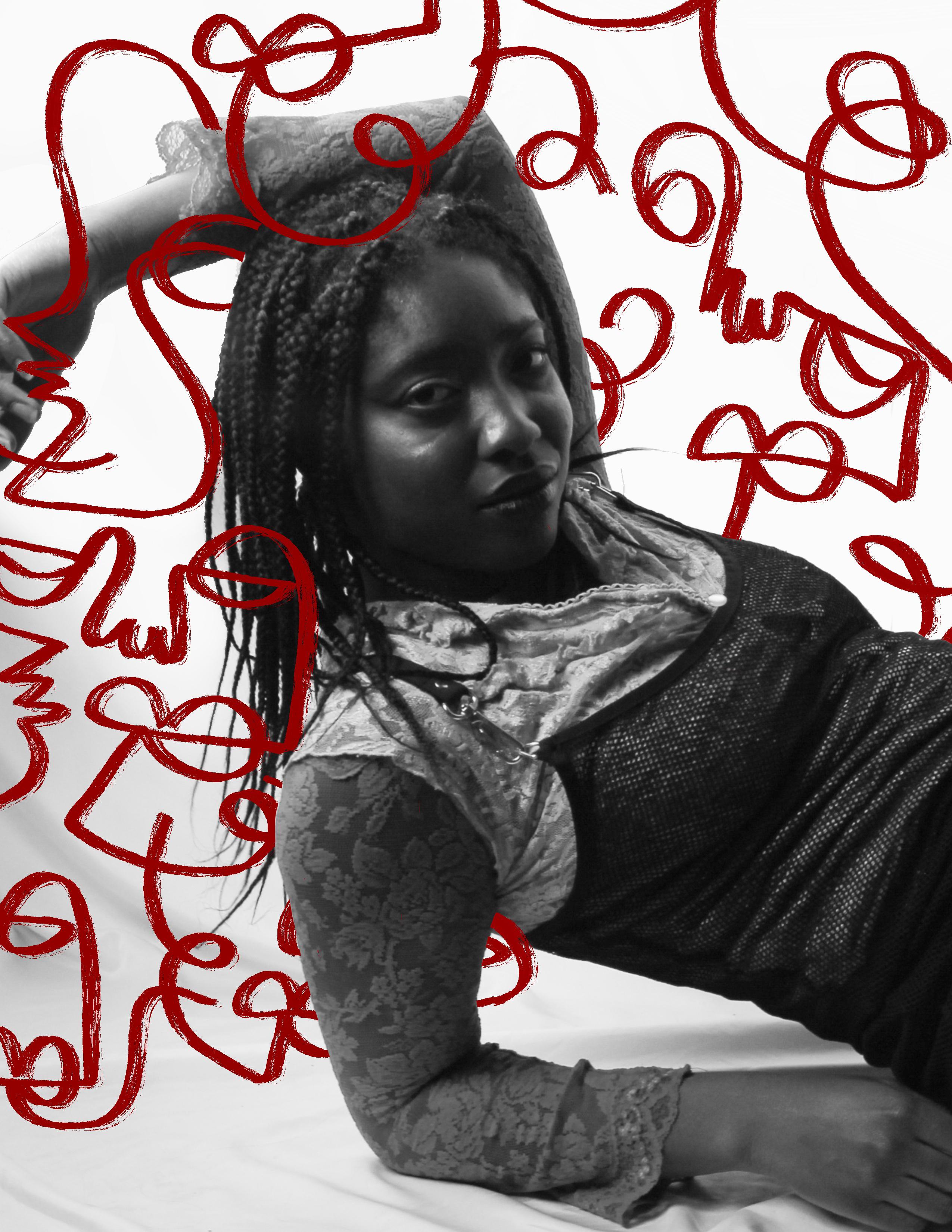

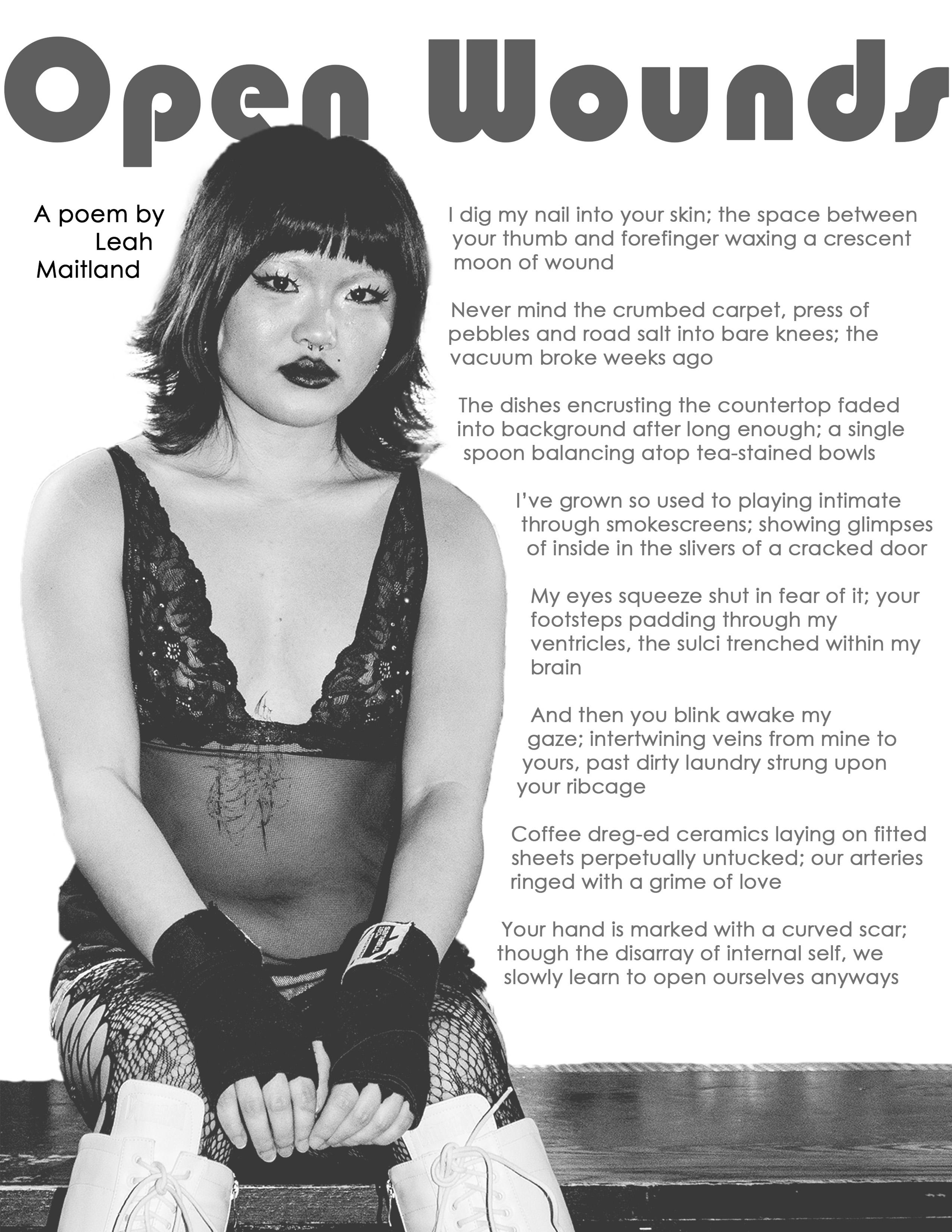





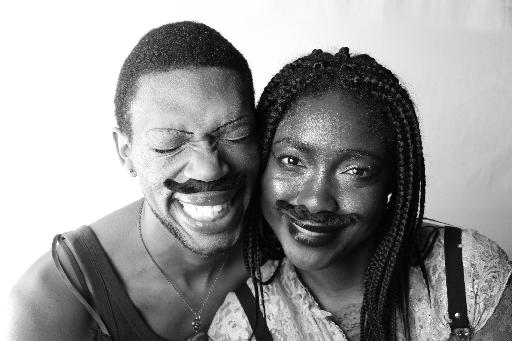


One of the most famous kisses shared between two men in history is entirely devoid of romantic love, but is rather steeped in betrayal. The kiss of Judas is one of the most iconic moments in the Christian canon, establishing itself as an intimate, albeit sinister, depiction of a ection; one that distinguishes itself through its pivotal role in the gospel narrative and through its many replications in modern popular culture. It’s ironic that one of the final acts of one of the holiest figures in Western culture was sharing a kiss with another man outside a completely romantic context, contrasting to most male friendships today. And what is the culprit for su ocating such intimacy?
Hegemonic masculinity refers to the dominant norms of male behavior within a given culture, encompassing a set of characteristics traditionally associated with masculinity, such as strength, dominance, and emotional restraint. These cultural expectations shape the way men perceive and express our emotion, often discouraging vulnerability and emotional openness. The impact of this phenomenon on male friendships is profound, as it sets rigid boundaries on acceptable behaviors and expressions of intimacy. Boys are conditioned to prioritize stoicism over vulnerability, competition over collaboration, and emotional detachment over genuine connection. These confines create a su ocating environment where fear of being perceived as overly a ectionate or loving towards one’s male peers is seen as feminine, and thus weak.
The impact of hegemonic masculinity on the expression of physical intimacy within male friendships is palpable. Hugs, kisses on the cheek, or other forms of physical a ection are perverted, lustful taboos, rather than being identified for the innocent expressions of platonic love that they are. In stark contrast, teenage girls are often encouraged to express physical intimacy as they develop. The cultural narrative surrounding female friendships tends to celebrate closeness, emotional sharing, and physical a ection, creating a supportive environment for the development of intimate bonds. All of these traits that can turn friendships between women into sisterhood are met with suspicion in male dominated spaces, solely to the detriment of the men within them.
